Pacific and Regional Archive for Digital Sources in Endangered Cultures (PARADISEC)
PARADISEC is a digital archive of records of some of the many small cultures and languages of the world. PARADISEC works to safely preserve materials that would otherwise be lost and their collection represents over 1,300 languages. Founded in 2003, PARADISEC is a consortium made up of the University of Sydney, the University of Melbourne and the Australian National University. PARADISEC has established a framework for accessioning, cataloguing and digitising audio, text and visual material, and preserving digital copies. A primary goal is to safely preserve material that would otherwise be lost. In this way PARADISEC can make field recordings available to the people and communities recorded, and to their descendants.
Research and Researchers
Two researchers affiliated with PARADISEC were involved in participatory research, gathering information from members of the Papua New Guinean diaspora, resident in Australia – Hula, Sinaugoru, Trobriand Islands and Motuan-Koita community members. The local researcher, Steven Gagau, collaborated with True Echoes Partner Investigator, Amanda Harris, on participatory research.
Steven Gagau brings to the Local Researcher role his expertise in research and archival assistance with PARADISEC. Steven’s cultural heritage is Tolai of Gunantuna people of New Britain Island in Papua New Guinea.
Steven is a diaspora community leader for PNG, Melanesia and Pasifika communities in Sydney NSW, is a member of Pacific Cultural Collection Advisory Panel of the Australian Museum and associated with various voluntary and not-for-profit organisations and professional associations.
Recordings
Local PARADISEC researchers interviewed members of the PNG diaspora community living in Australia. The diaspora speaker communities communicate frequently and travel regularly to visit family and relatives in their home village communities. The PARADISEC local researcher recorded interviews and new song performances, aiming to investigate how listening to early recordings evoke knowledge of fragmentary records of the past, and current practices.
New recordings were made in discussion with Hula and Sinaugoru participants: Roge Kila, Gulea Kila, Eileen Bobone and Deveni Temu. They shared their knowledge and understanding of the historical recordings, making meaning of the songs, and Roge and Gulea presented a short re-enactment of the song Leku Leku (C62-1491). Their responses to these historical recordings and excerpts of the songs are presented in new episodes of the Toksave – Culture Talks podcast, produced by Jodie Kell and Steven Gagau.
Leku Leku
In this video is a side-by-side presentation of the original 1904 recording of Leku Leku, which Jodie Kell has overdubbed to run into the modern re-interpretation of the song by Roge and Gulea Kila. This demonstrates the revitalisation of song traditions through reconnecting with archival recordings.
Leku Leku
Roge and Gulea Kila re-enact the Leku Leku song recorded in 1904, and sing two other songs from Hula traditions.
The second recording by Roge and Gulea Kila is a new singing of an Ute song, Ate Ate – a mourning song, in response to the Agi Pala Ute song (C62/1421) recorded by Seligmann.
Historical recordings
The Daniels Ethnographical Expedition to British New Guinea 1904 Cylinder Collection (C62) was researched with the diaspora community in Sydney and Canberra, Australia.
| British Library shelfmark | Recording title | Performer name | Recording location | Recording date | Content description | Performer description | Recording notes | Languages | Genre | Recordist | Recording length | Recording trip | Description of cylinder | Collection title | Cylinder location | Images of cylinder containers / documentation | Related print publication: | Related print publication: | Related print publication: | Related print publication: | Related print publication: | Related print publication: |
|---|---|---|---|---|---|---|---|---|---|---|---|---|---|---|---|---|---|---|---|---|---|---|
| C62/1415 | Waura Koita | Kabur (singer, male) | Port Moresby, British New Guinea | October 1904 | 1. Announcement: "Waura, a Koita song, sung by Kabur[?], Port Moresby, October 1904." 1. Unaccompanied male vocal solo. A song sung at dances and feasts. | Reasonable quality recording but with surface noise. | Koitabu | Field recordings | Seligman, Charles Gabriel | 3'40" | Daniels Ethnographical Expedition to New Guinea 1904 | Brown wax cylinder | Daniels Ethnographical Expedition to New Guinea 1904 Cylinder Collection (C62) | British Library | 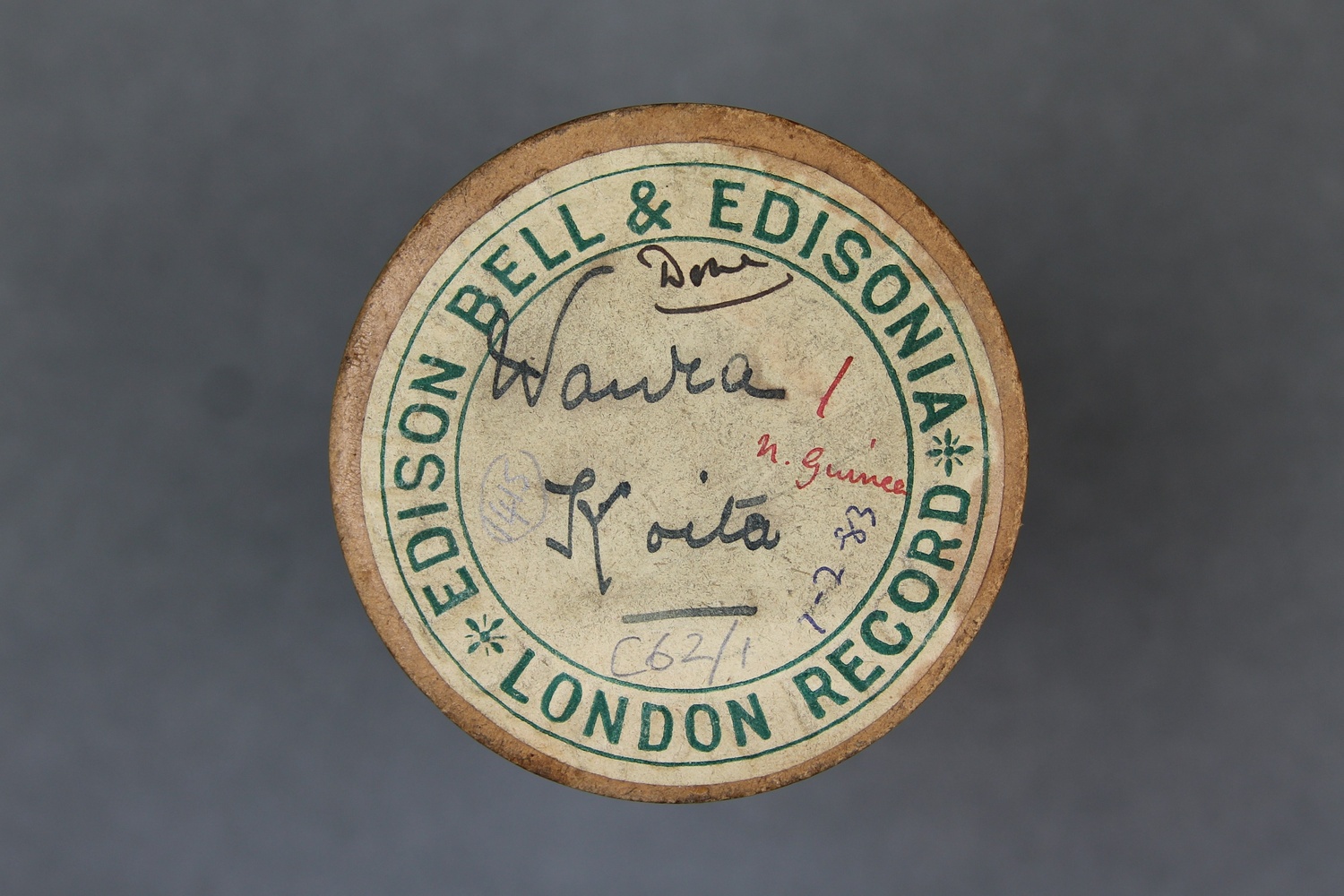 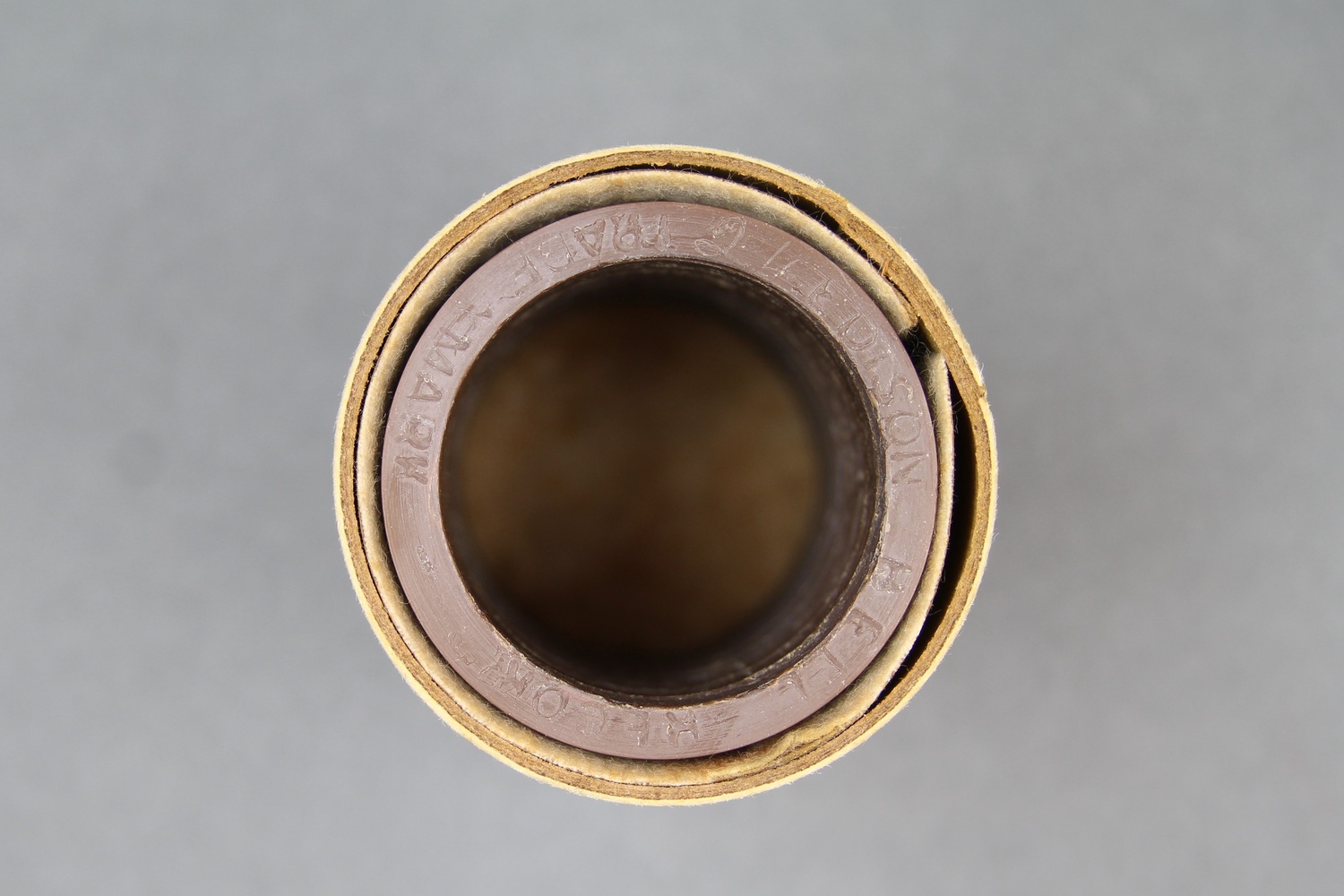     | This song is discussed and may be transcribed in Charles G. Seligmann, 'The Melanesians of British New Guinea', Cambridge University Press, 1910:151-152. | ||||||
| C62/1416 | Poru Koita | Kabur (singer, male) | Port Moresby, British New Guinea | October 1904 | 1. Announcement: "Poru, a Koita song, sung by Kabur[?] October 1904, Port Moresby." 2. Male vocal solo with percussion accompaniment. | Good quality recording but with some surface noise. | Koitabu | Field recordings | Seligman, Charles Gabriel | 3'29" | Daniels Ethnographical Expedition to New Guinea 1904 | Brown wax cylinder | Daniels Ethnographical Expedition to New Guinea 1904 Cylinder Collection (C62) | British Library | 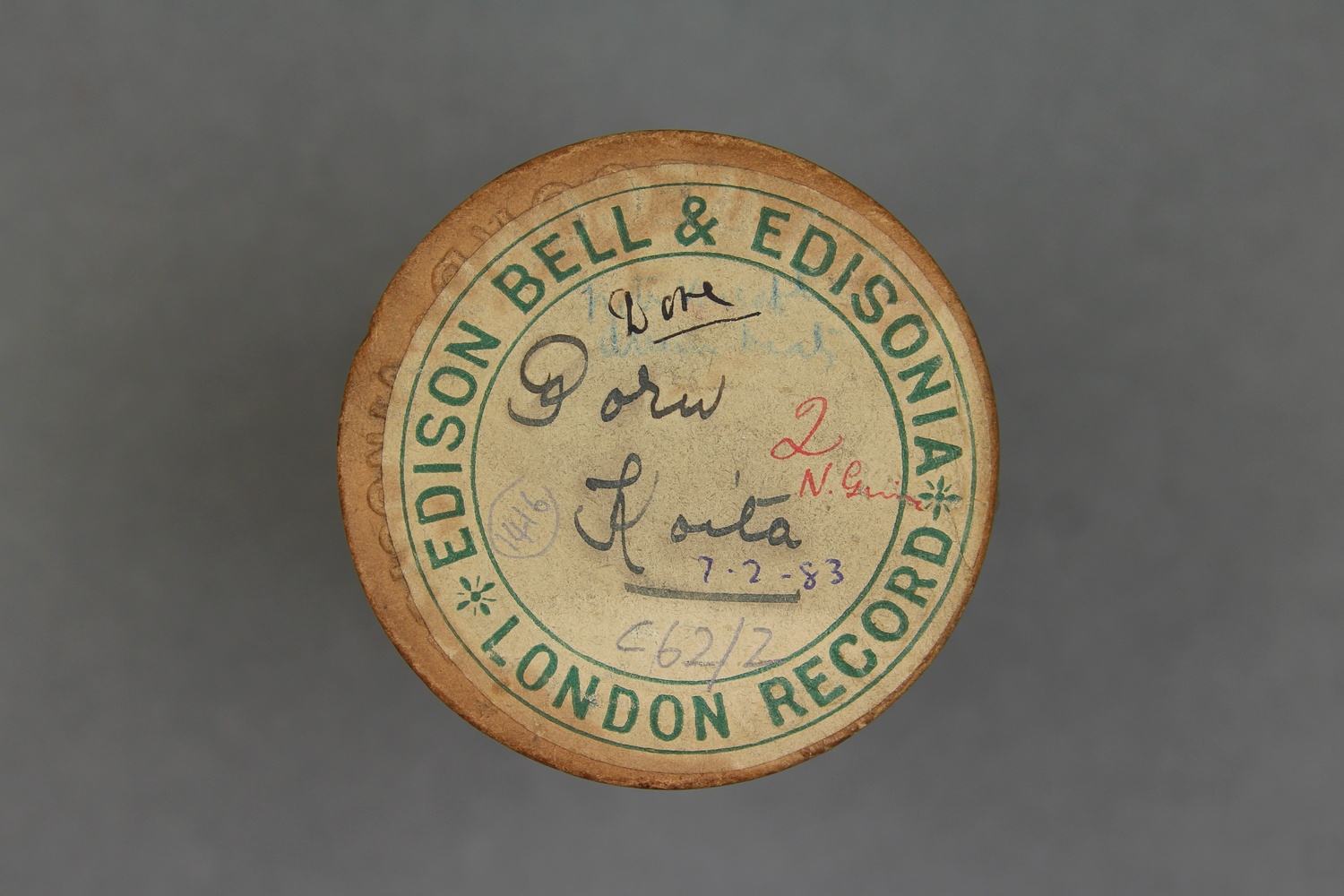      | This song may be discussed and transcribed in Charles G. Seligmann, 'The Melanesians of British New Guinea', Cambridge University Press, 1910:151-152. | ||||||
| C62/1417 | Berasi Koita | Unidentified (male chorus) | Port Moresby, British New Guinea | October 1904 | 1. Announcement: "Berasi - the Koita garden fencing song, sung at Port Moresby, October 1904." 2. Unaccompanied male vocal group. A song sung while fencing gardens; also a funeral dirge. | Good quality recording. | Koitabu | Field recordings; Garden fencing song | Seligman, Charles Gabriel | 3'51" | Daniels Ethnographical Expedition to New Guinea 1904 | Brown wax cylinder | Daniels Ethnographical Expedition to New Guinea 1904 Cylinder Collection (C62) | British Library |       | This song is discussed and may be transcribed in Charles G. Seligmann, 'The Melanesians of British New Guinea', Cambridge University Press, 1910:152-153. | ||||||
| C62/1418 | Ehona Lahato Koita | Igo Gow (singer, male) | Port Moresby, British New Guinea | October 1904 | 1. Announcement: "Lahato song, Ehona, sung by Igo Jow[?], Port Moresby, October 1904." 2. Unaccompanied male vocal solo. An ehona song. There are two photos of Igo Gow in the British Museum (Oc,B119.43 and Oc,B119.52). | Reasonable quality recording but with some distortion. | Koitabu or Motu | Field recordings; Trading song; Voyaging song | Seligman, Charles Gabriel | 3'43" | Daniels Ethnographical Expedition to New Guinea 1904 | Brown wax cylinder | Daniels Ethnographical Expedition to New Guinea 1904 Cylinder Collection (C62) | British Library | 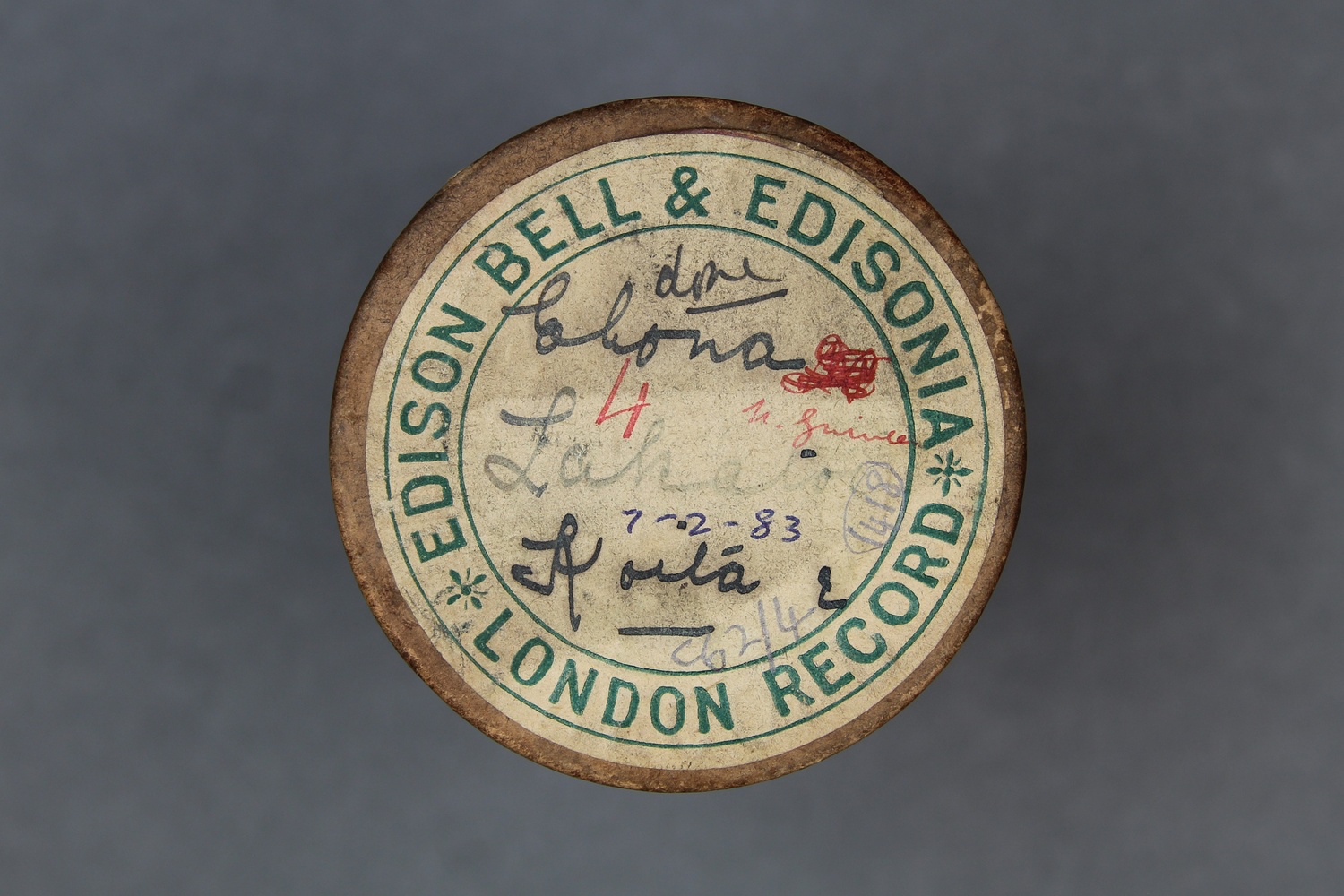      | This song may be discussed and transcribed in Charles G. Seligmann, 'The Melanesians of British New Guinea', Cambridge University Press, 1910:152. | ||||||
| C62/1419 | 27 Osebouta Trobriands | Unidentified (spoken, male) | Trobriand Islands, British New Guinea | September 1904 | 1. Announcement: "Osebouta. A sung [?] song at the Kaiwos Womilamala, by [indecipherable]. Trobriand Islands, September 1904." Song sung at a funeral feast. | Good quality recording. | Kilivila | Field recordings; Laments | Seligman, Charles Gabriel | 3'09" | Daniels Ethnographical Expedition to New Guinea 1904 | Brown wax cylinder | Daniels Ethnographical Expedition to New Guinea 1904 Cylinder Collection (C62) | British Library | 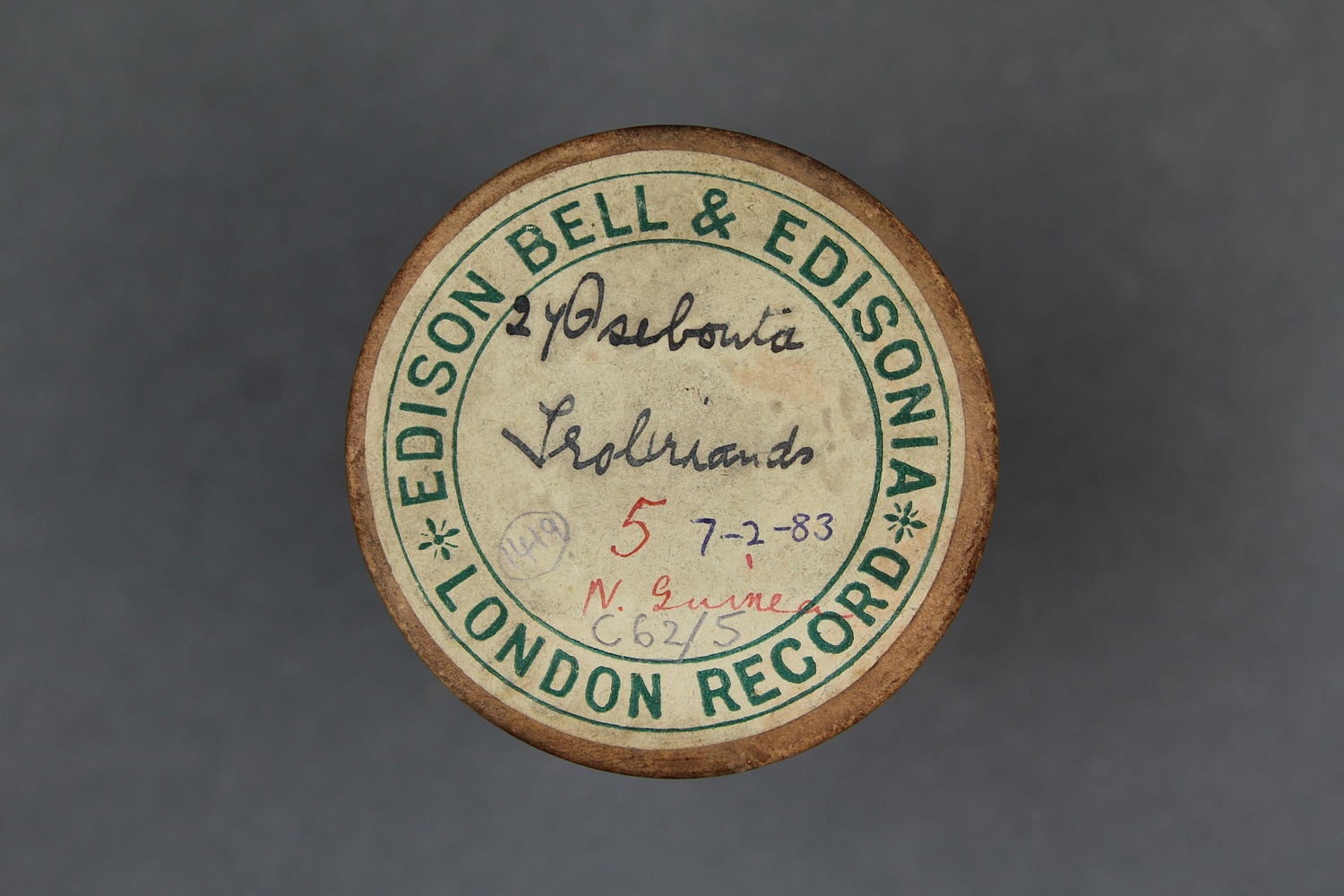      | The feast is mentioned in Charles G. Seligmann, 'The Melanesians of British New Guinea', Cambridge University Press, 1910:750. | ||||||
| C62/1420 | 26 Mamiepo | Unidentified (spoken, male); Unidentified (singer, male) | Trobriand Islands, British New Guinea | September 1904 | 1. Announcement: "Song sung at Kaiwos womilama, Trobriand Islands, September 1904." 2. Unaccompanied male vocal solo. Song sung at a funeral feast. | Good quality recording. | Kilivila | Field recordings; Laments | Seligman, Charles Gabriel | 3'09" | Daniels Ethnographical Expedition to New Guinea 1904 | Brown wax cylinder | Daniels Ethnographical Expedition to New Guinea 1904 Cylinder Collection (C62) | British Library |  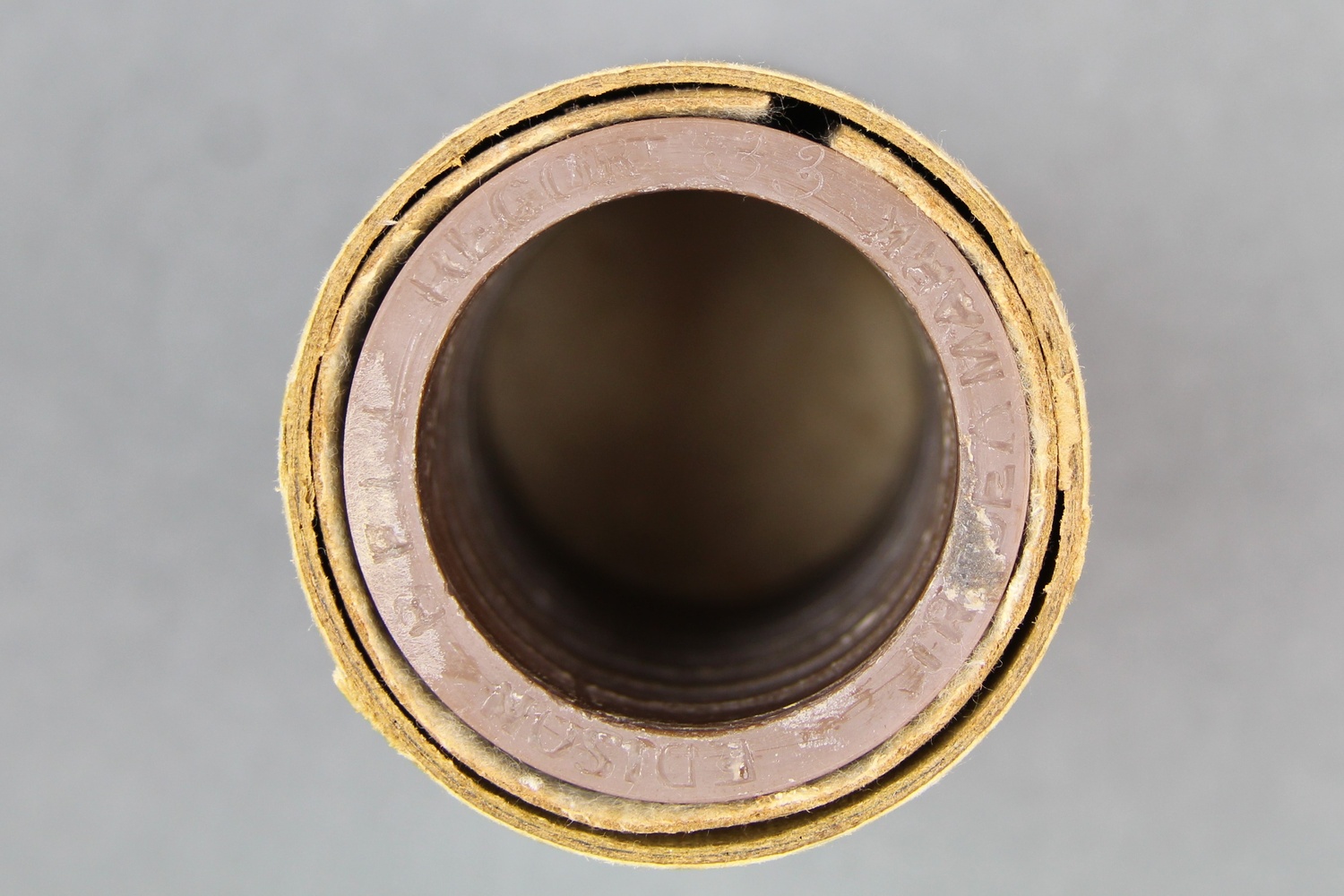     | The feast is mentioned in Charles G. Seligmann, 'The Melanesians of British New Guinea', Cambridge University Press, 1910:750. | ||||||
| C62/1421 | 13 Ariparla kulaa | Unidentified (male chorus) | Hula, Central District, British New Guinea | July 1904 | 1. Announcement: "Ariparla, lament for the dead, sung round the body for the first 24 hours. Kulaa." 2. Unaccompanied male vocal group singing in harmony. | Good quality recording. | Hula | Field recordings; Laments | Seligman, Charles Gabriel | 3'15" | Daniels Ethnographical Expedition to New Guinea 1904 | Brown wax cylinder | Daniels Ethnographical Expedition to New Guinea 1904 Cylinder Collection (C62) | British Library | 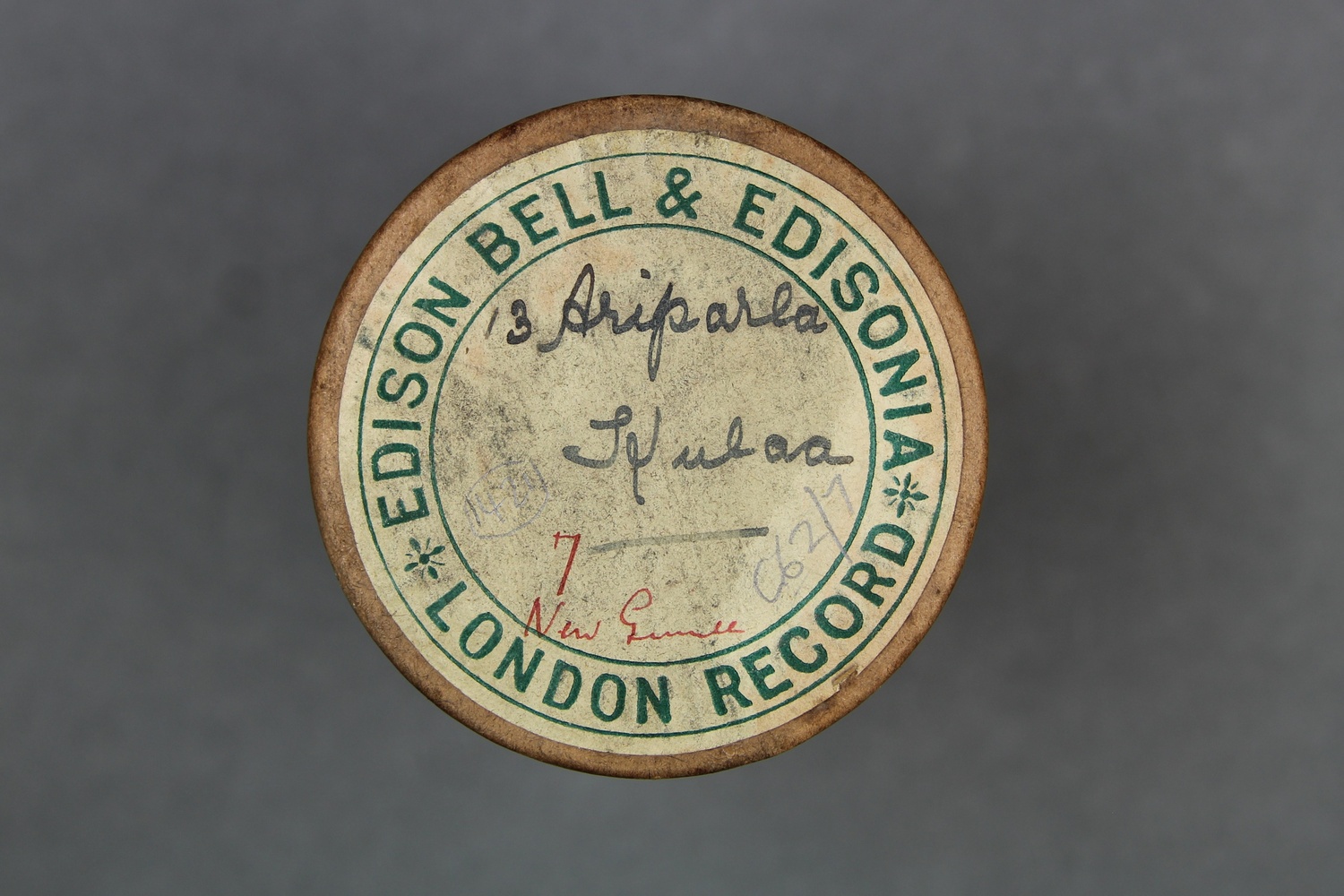      | |||||||
| C62/1422 | Roro Kulaa | Unidentified (male chorus) | Hula, Central District, British New Guinea | July 1904 | 1. Announcement: "Roro. A kulaa song, sung only by the older folk of both sexes." 2. Unaccompanied vocal group. | Good quality recording. | Hula | Field recordings | Seligman, Charles Gabriel | 3'15" | Daniels Ethnographical Expedition to New Guinea 1904 | Brown wax cylinder | Daniels Ethnographical Expedition to New Guinea 1904 Cylinder Collection (C62) | British Library |       | |||||||
| C62/1423 | 16 Palarupu Kulaa | Unidentified (male chorus) | Hula, Central District, British New Guinea | July 1904 | 1. Announcement: "Palarupa. Sung by successful [?] homicide, [indecipherable]. Kulaa." 2. Unaccompanied male vocal group. | Good quality recording although with some surface noise. | Hula | Field recordings; Sung after homicide | Seligman, Charles Gabriel | 3'04" | Daniels Ethnographical Expedition to New Guinea 1904 | Brown wax cylinder | Daniels Ethnographical Expedition to New Guinea 1904 Cylinder Collection (C62) | British Library | 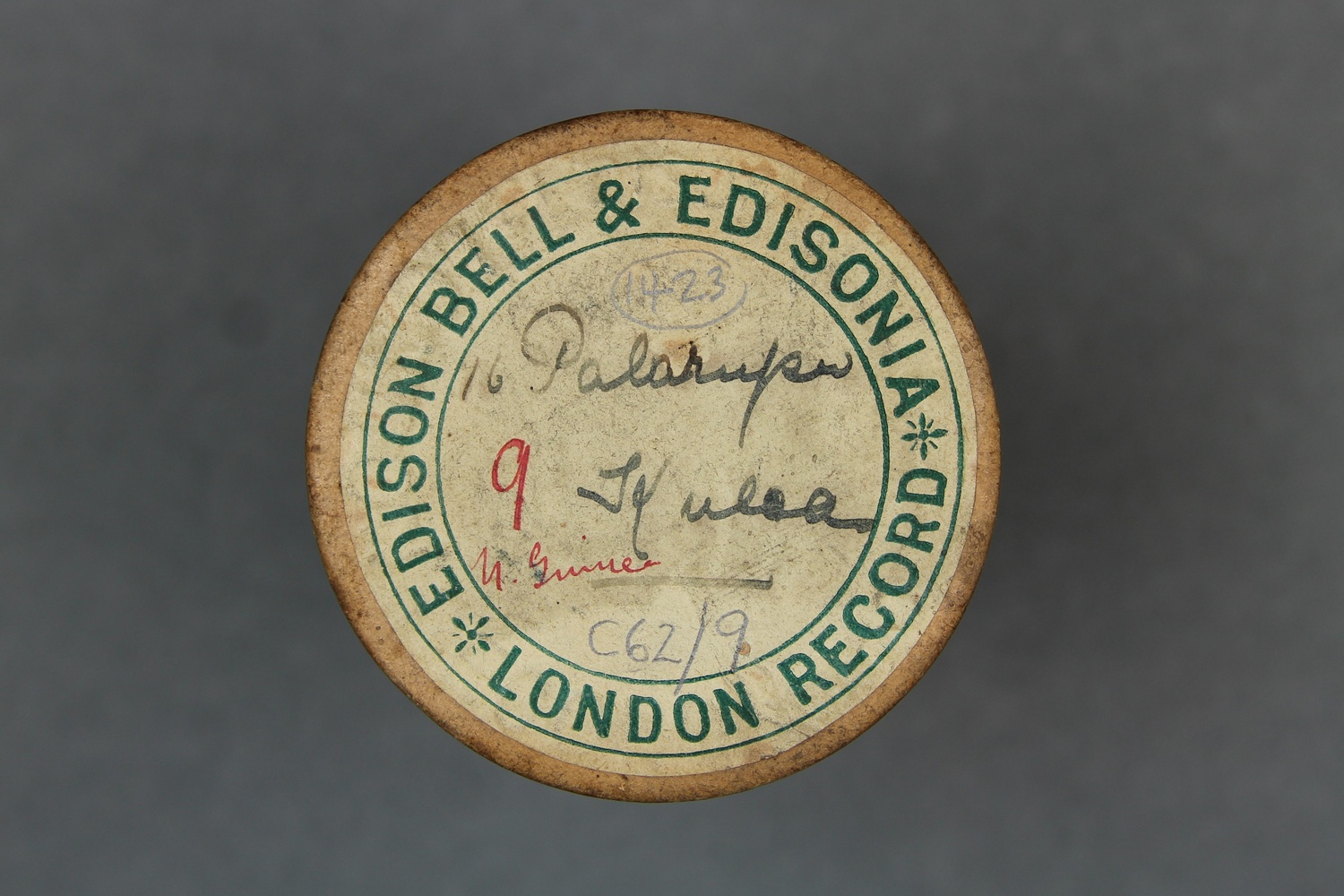      | |||||||
| C62/1424 | Hara Tabo Story | Ahuia Ova (narrator, male) | Port Moresby, British New Guinea | October 1904 | 1. Announcement: "The story of Hara Tabo, told by [indecipherable], Port Moresby, October 1904." 2. Unaccompanied male speech. | Good quality recording. | Koitabu | Field recordings; Speeches | Seligman, Charles Gabriel | 3'28" | Daniels Ethnographical Expedition to New Guinea 1904 | Brown wax cylinder | Daniels Ethnographical Expedition to New Guinea 1904 Cylinder Collection (C62) | British Library | 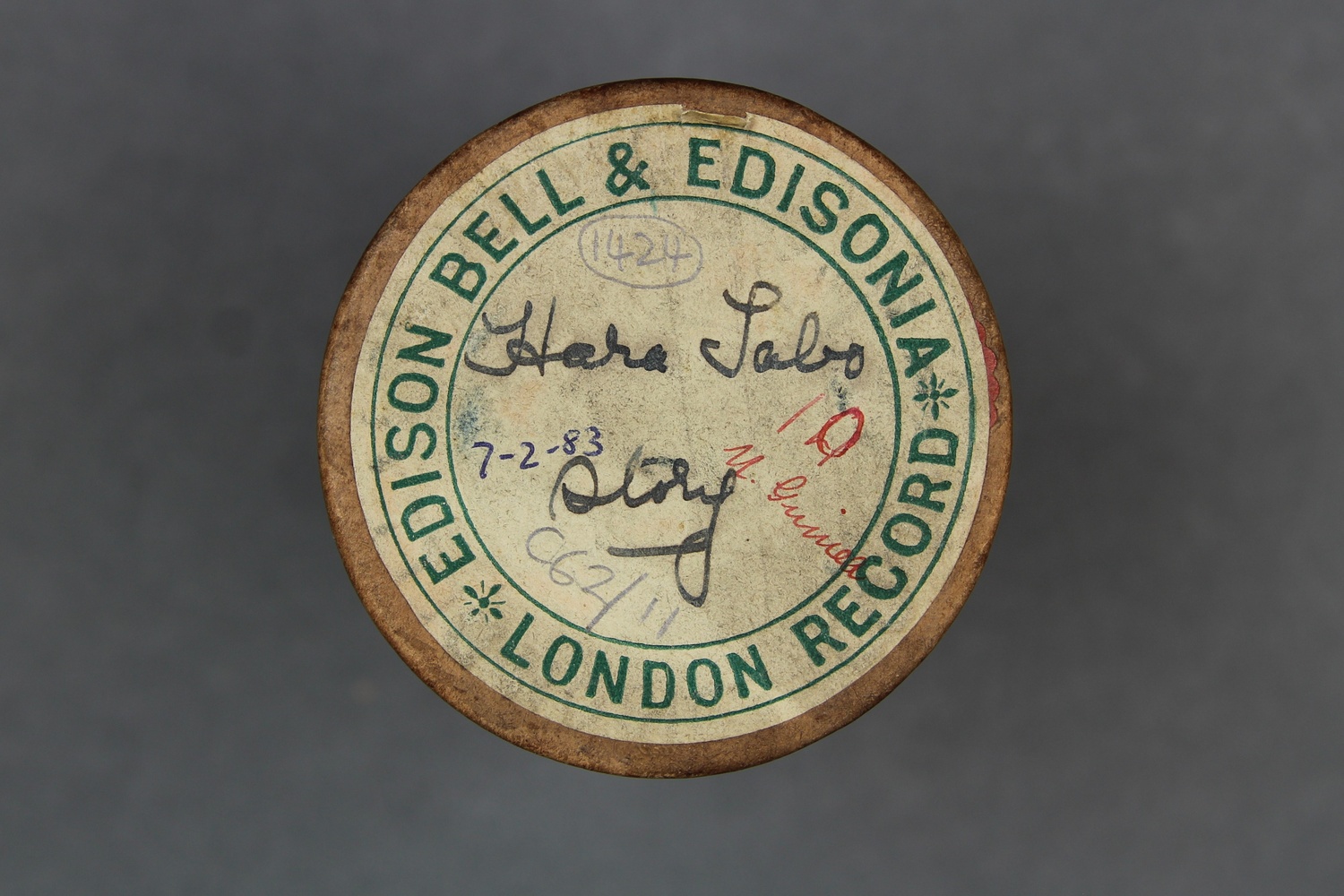      | This story is transcribed in Charles G. Seligmann, 'The Melanesians of British New Guinea', Cambridge University Press, 1910:183-185. | ||||||
| C62/1425 | 14 Kele kele Kulaa | Unidentified (male chorus) | Hula, Central District, British New Guinea | July 1904 | 1. Announcement: "Kele kele song sung in Naka'ana's [?] house, before the turtle neck was put upon the canoe. Kulaa." 2. Vocal group singing in harmony, accompanied by percussion. | Good quality recording, although track 2 begins and ends with repeating grooves. | Hula | Field recordings | Seligman, Charles Gabriel | 3'10" | Daniels Ethnographical Expedition to New Guinea 1904 | Brown wax cylinder | Daniels Ethnographical Expedition to New Guinea 1904 Cylinder Collection (C62) | British Library | 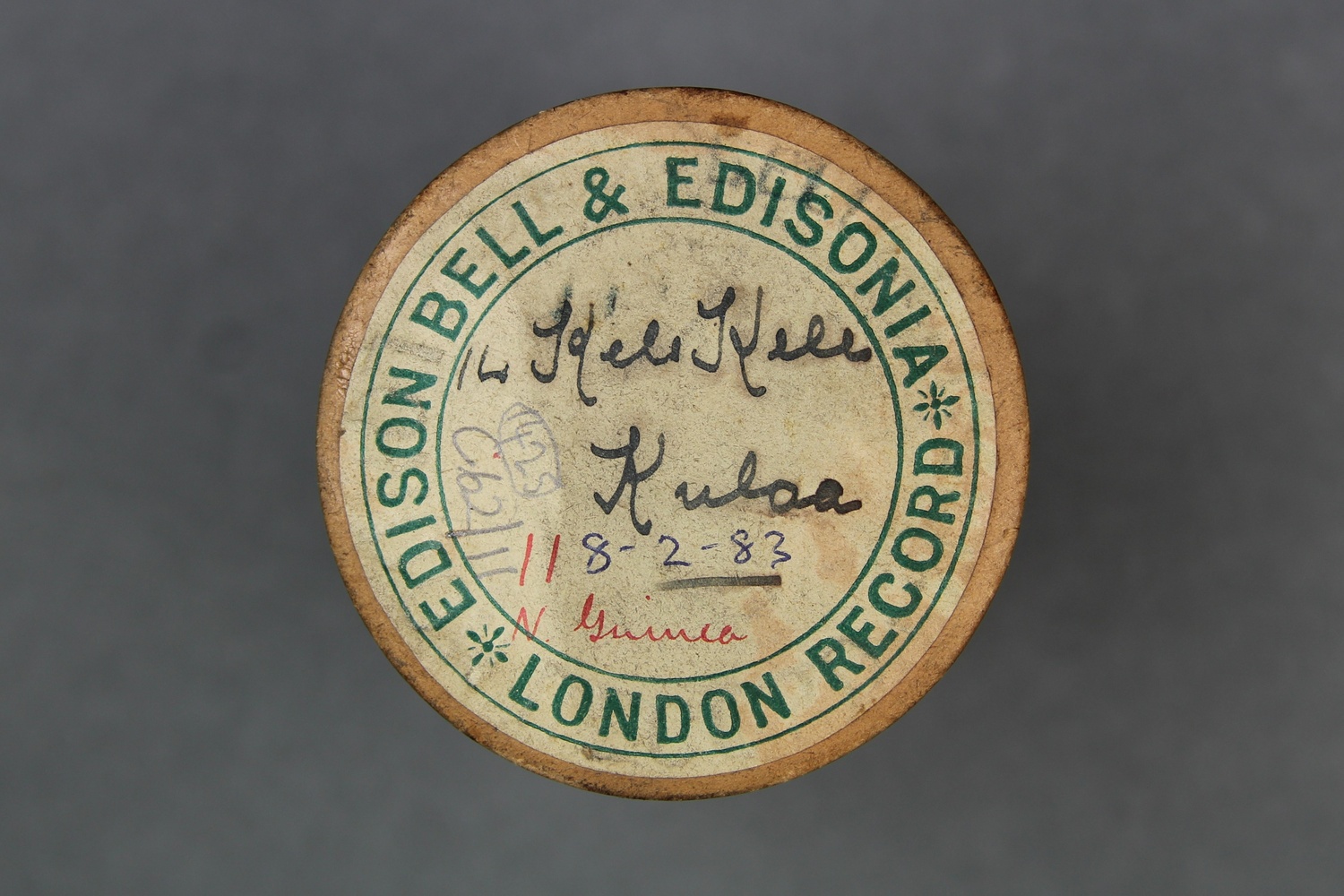 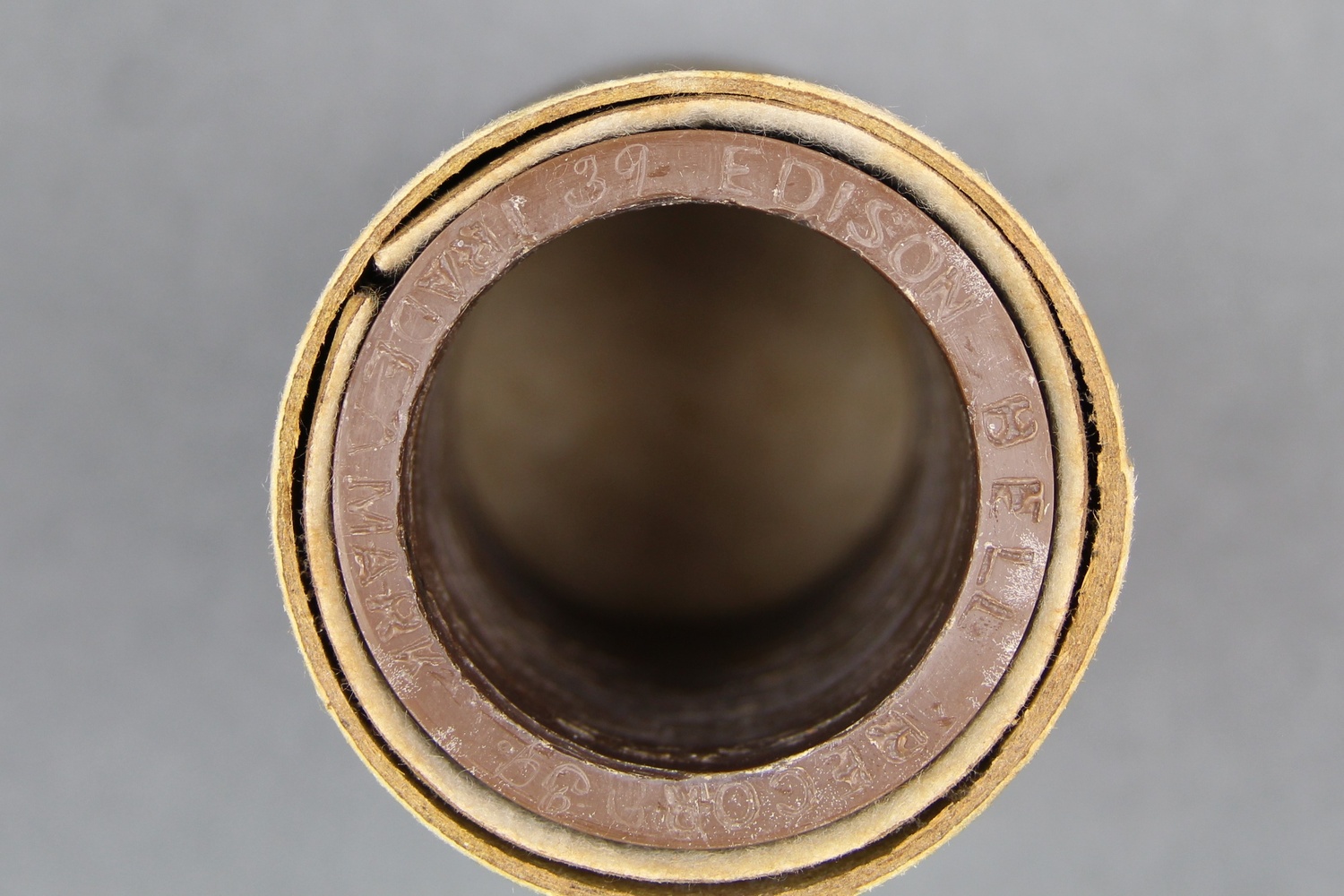     | |||||||
| C62/1426 | (Solo) Kaime – Gore. A.H.D | Unidentified (singer, male) | Port Moresby, British New Guinea | 5 January 1904 ? | 1. Male vocal solo, accompanied by percussion. This is probably a historical ehona song concerning Kaimegore, a man who sailed a lakatoi canoe as part of the hiri trading voyage. | Good quality recording. | Motu and/or Koitabu | Field recordings; Trading song; Voyaging song | Seligman, Charles Gabriel | 2'11" | Daniels Ethnographical Expedition to New Guinea 1904 | Brown wax cylinder | Daniels Ethnographical Expedition to New Guinea 1904 Cylinder Collection (C62) | British Library | 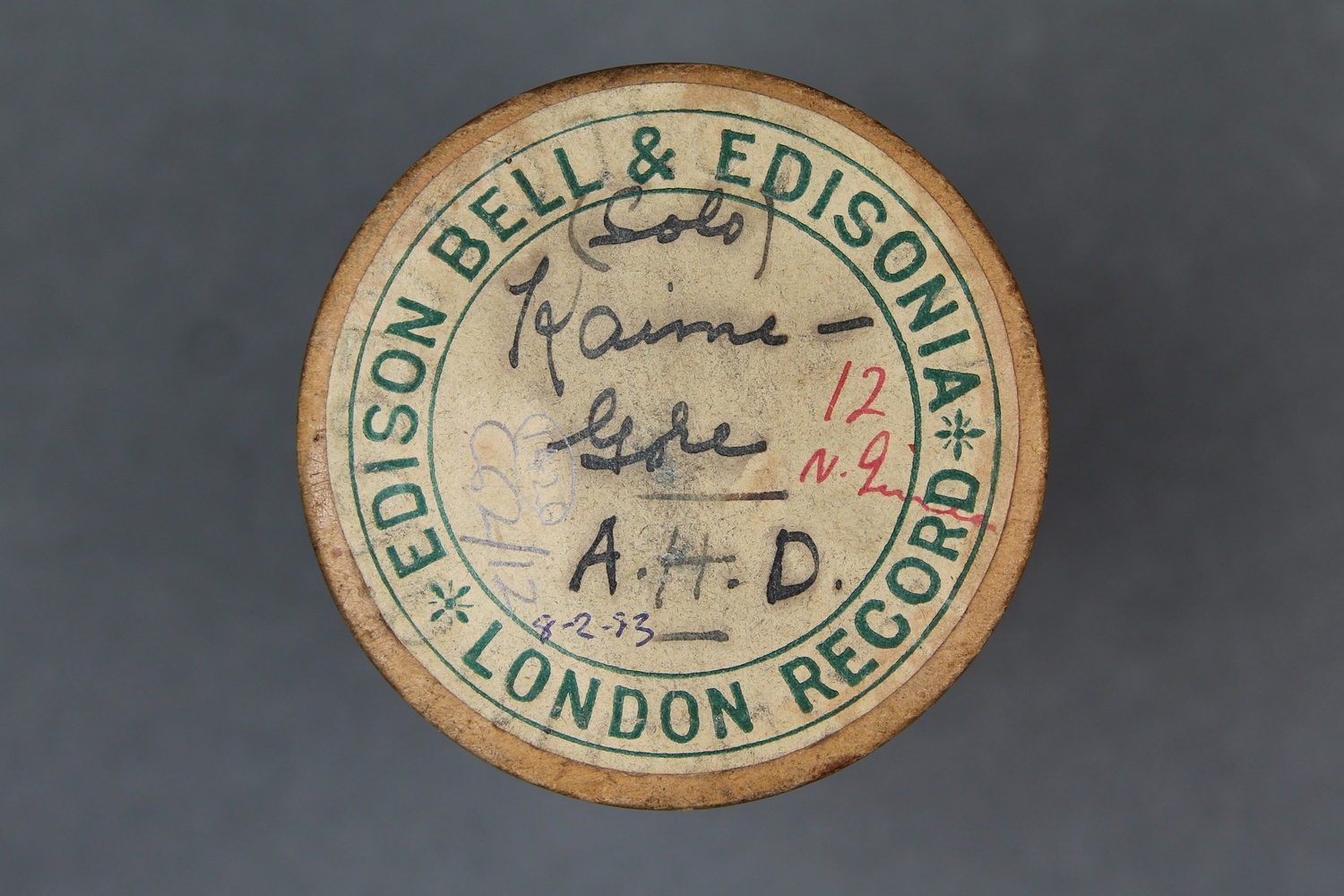      | Transcription of song in F. R. Barton's chapter in Charles Seligmann 'The Melanesians of British New Guinea', Cambridge Universtiy Press, 1910:117. | ||||||
| C62/1427 | Kornedoi Rigo | Unidentified (male chorus); unidentified (percussion) | Rigo, Central District, British New Guinea | July 1904 | Announcement: "Kornedoi, a koyori dance, adapted and used by the Garia. Sung by the Garia, at Rigo, July 1904." 2. Male vocal group with percussion accompaniment. | Good quality recording. | Uare. Garihe (Garia dialect); language also known as Kwale. | Field recordings | Seligman, Charles Gabriel | 2'33" | Daniels Ethnographical Expedition to New Guinea 1904 | Brown wax cylinder | Daniels Ethnographical Expedition to New Guinea 1904 Cylinder Collection (C62) | British Library | 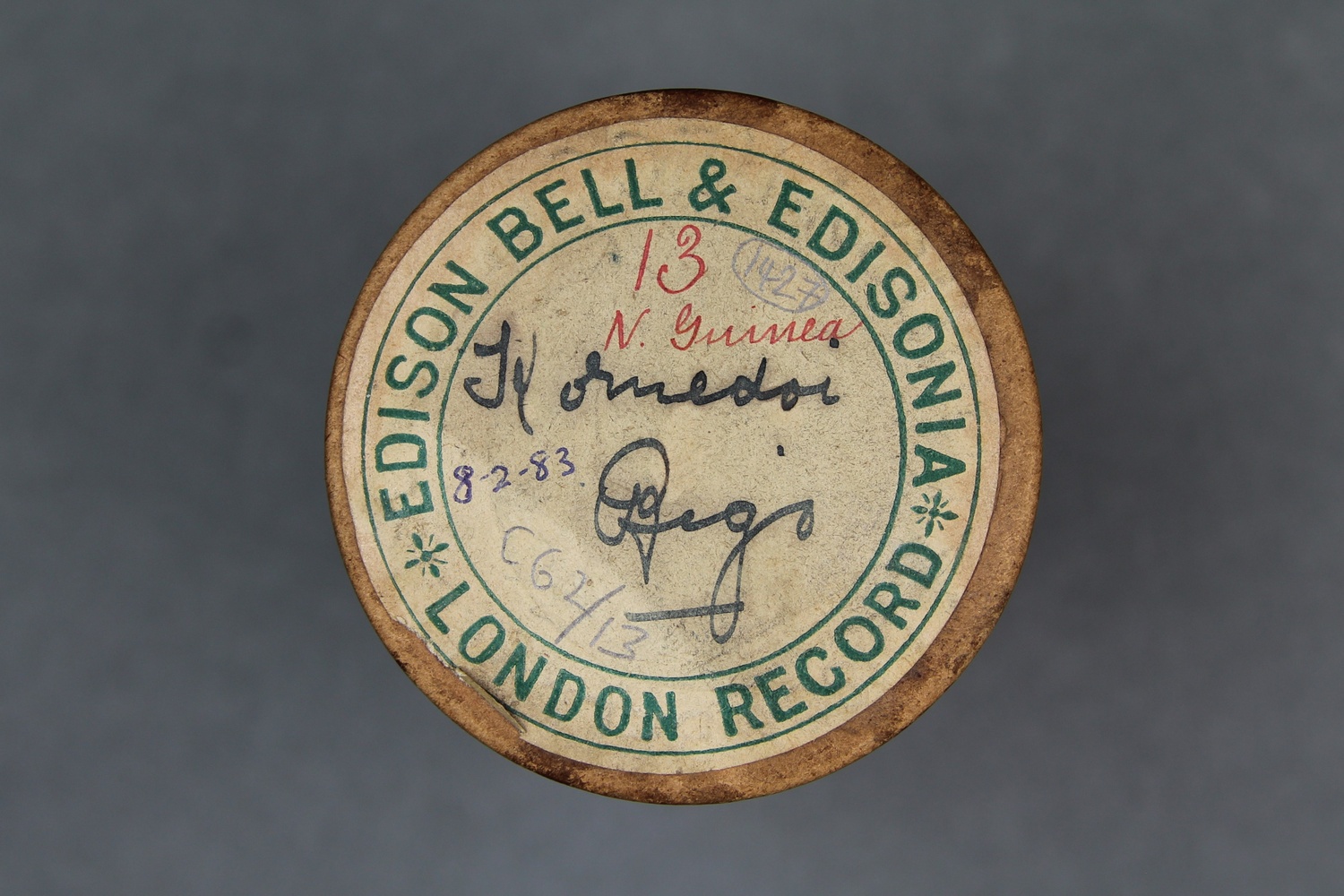      | |||||||
| C62/1428 | 6 Meori Rigo | Unidentified (male chorus); unidentified (singer, male); unidentified (percussion) | Rigo, Central District, British New Guinea | July 1904 | 1. Announcement: "[indecipherable], a kokila dance, sung by the natives at the foot of Mount Obree, Rigo District, British New Guinea." 2. Male vocal solo, accompanied by vocal group and percussion. | Good quality recording. | Doromu-Koki. Kokila dialect. | Field recordings | Seligman, Charles Gabriel | 2'49" | Daniels Ethnographical Expedition to New Guinea 1904 | Brown wax cylinder | Daniels Ethnographical Expedition to New Guinea 1904 Cylinder Collection (C62) | British Library |       | |||||||
| C62/1429 | Leku Leku Part 2 | Unidentified (male chorus); unidentified (percussion) | Rigo, Central District, British New Guinea | July 1904 | This cylinder continues on from cylinder no.11 (C62/1430). 1. Announcement: "... in honour of [indecipherable] after Kokila, Part 2. " 2. Vocal group accompanied by percussion. | Good quality recording. | Sinaugoro (?) | Field recordings | Seligman, Charles Gabriel | 2'39" | Daniels Ethnographical Expedition to New Guinea 1904 | Brown wax cylinder | Daniels Ethnographical Expedition to New Guinea 1904 Cylinder Collection (C62) | British Library | 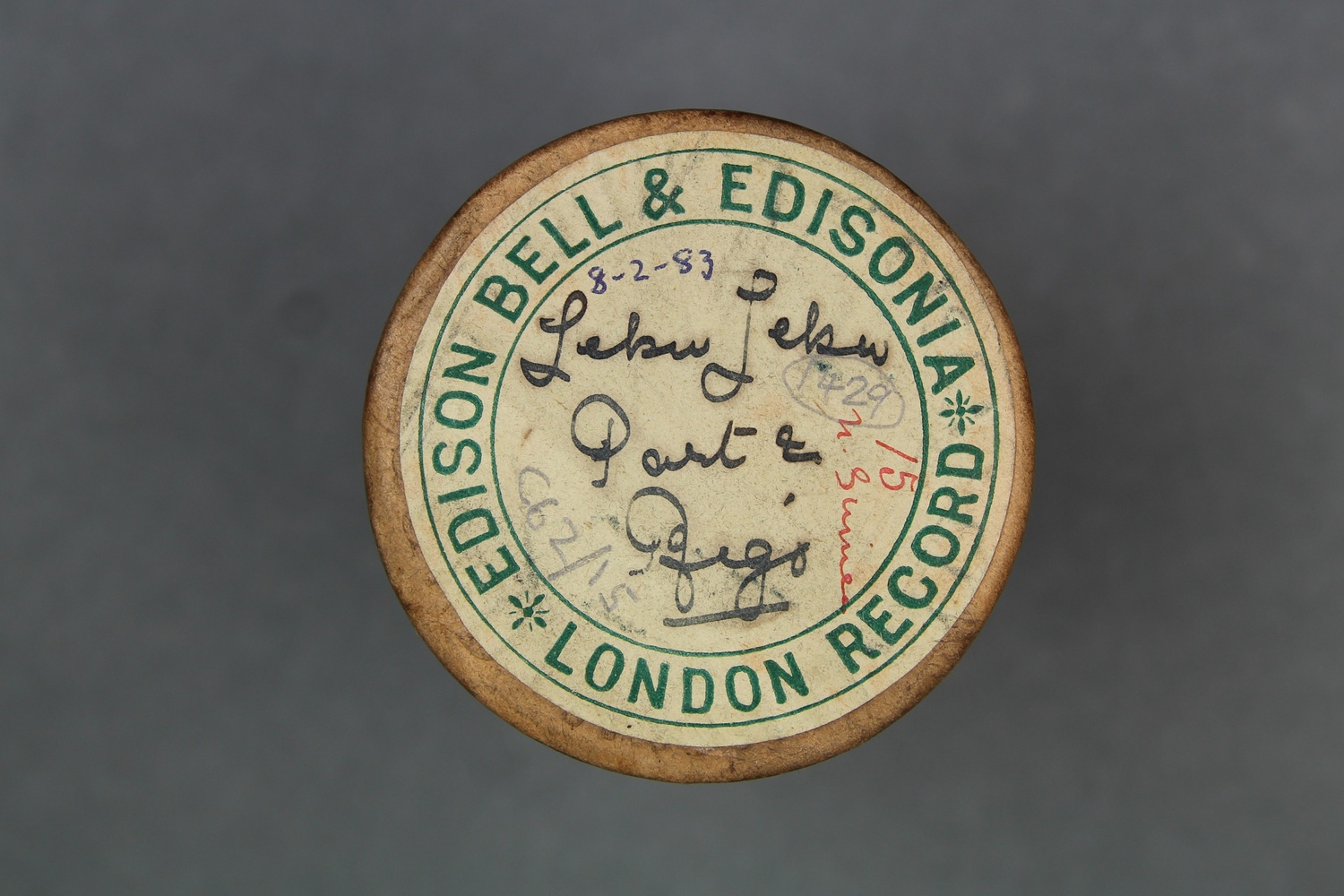      | |||||||
| C62/1430 | 11 Leku Leku Part 1 | Unidentified (male chorus); unidentified (percussion) | Rigo, Central District, British New Guinea | July 1904 | 1. Announcement: "Leku Leku, composed in [indecipherable]'s honour, by Kwaipo, after the battle of Kokila[?]." 2. Vocal group accompanied by percussion. | Good quality recording. | Sinaugoro (?) | Field recordings | Seligman, Charles Gabriel | 2'30" | Daniels Ethnographical Expedition to New Guinea 1904 | Brown wax cylinder | Daniels Ethnographical Expedition to New Guinea 1904 Cylinder Collection (C62) | British Library |       | |||||||
| C62/1431 | 7 Gomi Rigo | Unidentified (singer, male); unidentified (percussion) | Rigo, Central District, British New Guinea | July 1904 | 1. Announcement: "Gomi, a Kokila song, adopted by the Garia and used by them. [indecipherable] brought to the Garia, at the time of the ... [indecipherable] ...Kokila [indecipherable]." 2. Male vocal solo with percussion accompaniment. | Good quality recording but announcement is unclear. | Uare. Garihe (Garia dialect); language also known as Kwale; such is the language of the performers, but originally the song is said to be from Doromu-Koki [kac], Kokila dialect. | Field recordings | Seligman, Charles Gabriel | 2'37" | Daniels Ethnographical Expedition to New Guinea 1904 | Brown wax cylinder | Daniels Ethnographical Expedition to New Guinea 1904 Cylinder Collection (C62) | British Library | 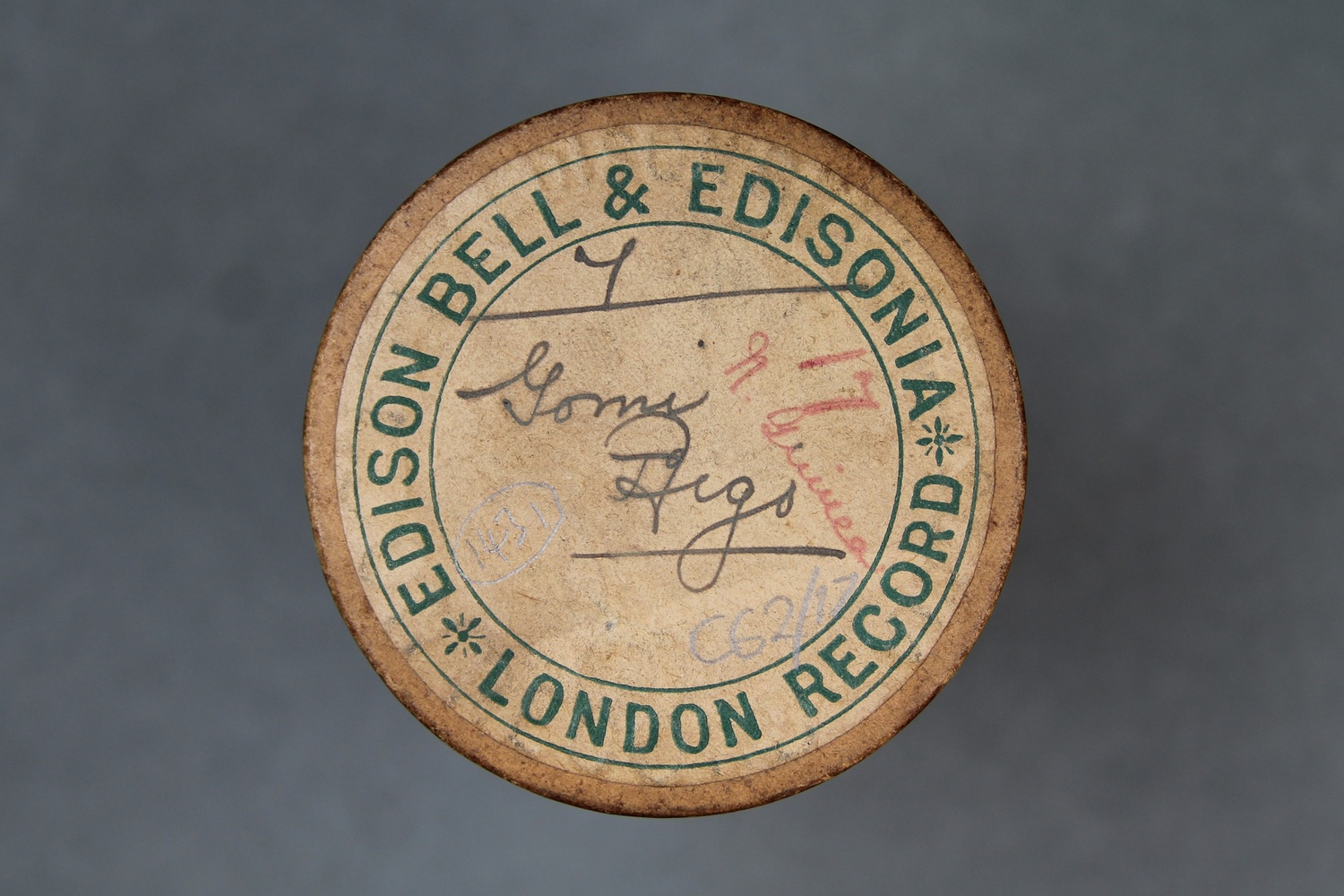      | |||||||
| C62/1432 | 1 Mada Rigo | Unidentified (singer, male); unidentified (percussion) | Rigo, Central District, British New Guinea | July 1904 | 1. Announcement: "[indecipherable] Mada, sung by Warina Koro[?], a native of Taboro Goro[?], an inland [indecipherable]. Rigo district, July 1904." 2. Male vocal solo with percussion accompaniment, ending with chorus of laughter. | Good quality recording. | Sinaugoro | Field recordings | Seligman, Charles Gabriel | 2'28" | Daniels Ethnographical Expedition to New Guinea 1904 | Brown wax cylinder | Daniels Ethnographical Expedition to New Guinea 1904 Cylinder Collection (C62) | British Library | 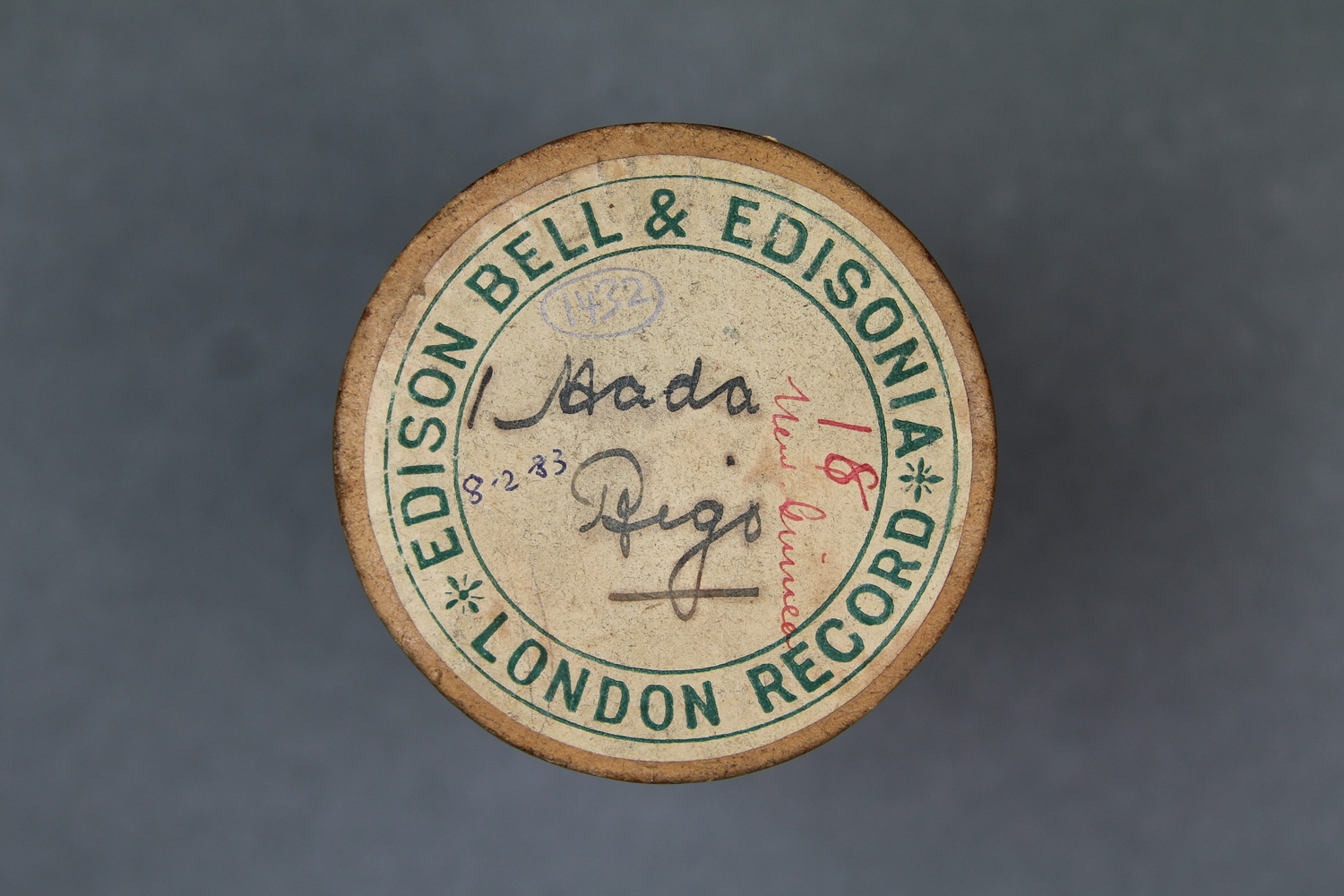      | |||||||
| C62/1433 | 4 Waula Rigo | Unidentified (singer, male); unidentified (percussion) | Rigo, Central District, British New Guinea | July 1904 | 1-2. Male vocal solo, accompanied by percussion. 3. Announcement: "Foregoing songs are sinaugolo waula, sung by [indecipherable] of Gumori-" [ends abruptly]. | Good quality recording but begins with wow, and some surface noise. | Sinaugoro | Field recordings | Seligman, Charles Gabriel | 2'41" | Daniels Ethnographical Expedition to New Guinea 1904 | Brown wax cylinder | Daniels Ethnographical Expedition to New Guinea 1904 Cylinder Collection (C62) | British Library | 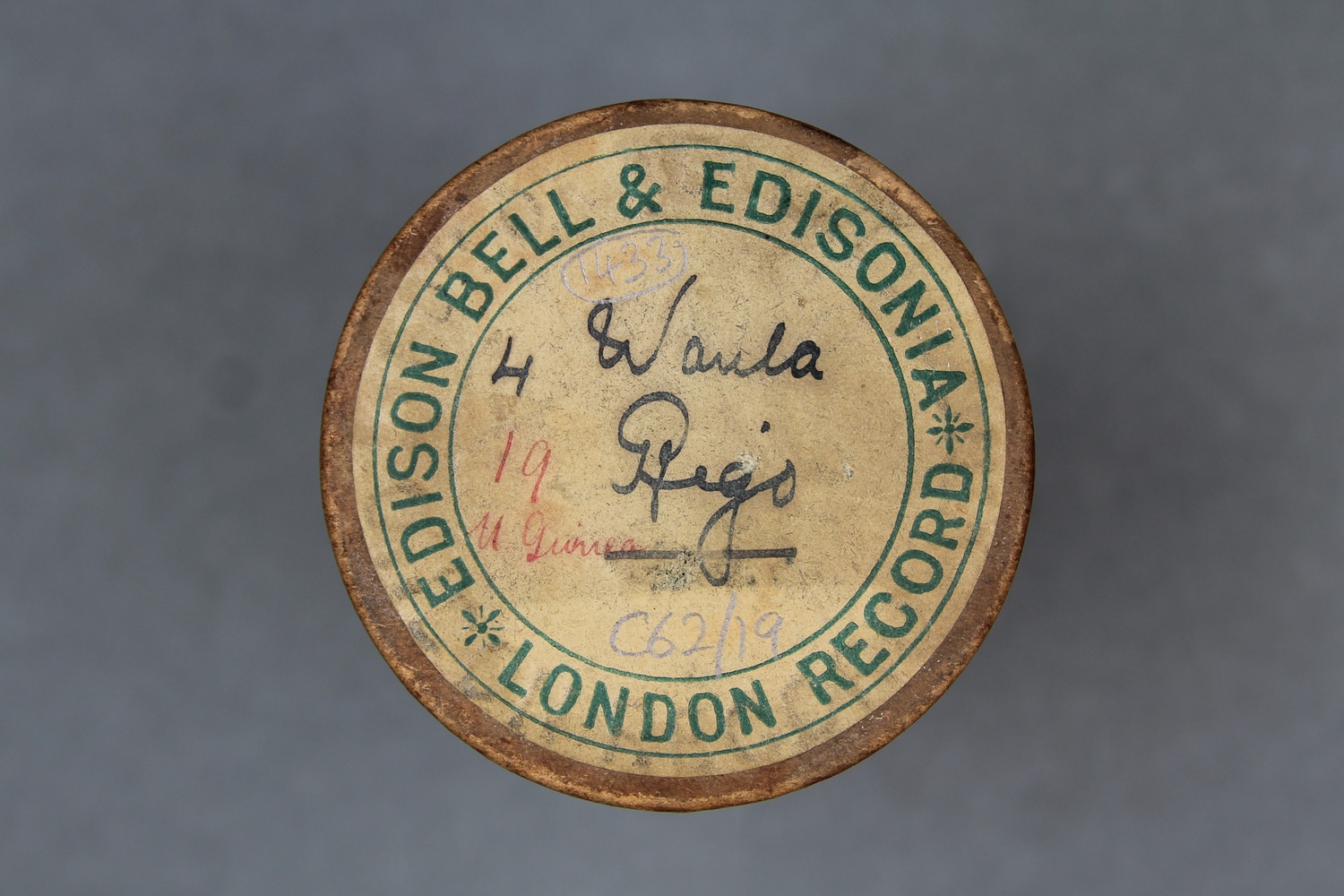      | |||||||
| C62/1434 | 3 Kebene Rigo | Unidentified (singer, male); unidentified (percussion) | Rigo, Central District, British New Guinea | July 1904 | 1. Announcement: "Kebene song, by [indecipherable] of the Garia tribe, Rigo district, July 1904." 2. Male vocal solo, accompanied by percussion. | Good quality recording. | Uare. Garihe (Garia dialect); language also known as Kwale. | Field recordings | Seligman, Charles Gabriel | 2'49" | Daniels Ethnographical Expedition to New Guinea 1904 | Brown wax cylinder | Daniels Ethnographical Expedition to New Guinea 1904 Cylinder Collection (C62) | British Library | 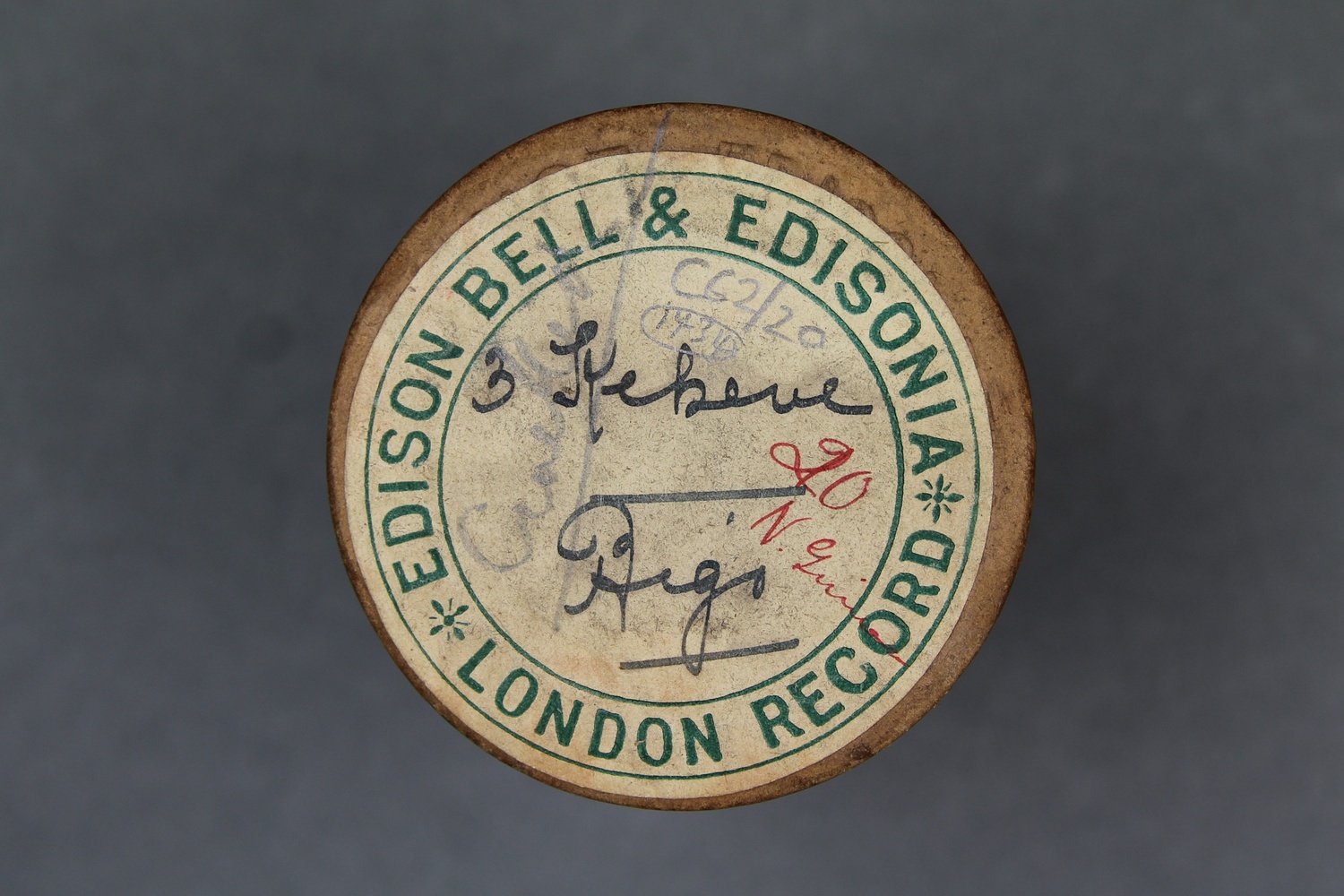      | |||||||
| C62/1435 | 9 Waula (Siromuka) Rigo | Unidentified (singer, male); unidentified (percussion) | Rigo, Central District, British New Guinea | July 1904 | 1. Announcement: "Sinaugolo Waula Siromuka, sung by [indecipherable] and [indecipherable] on Gumari Dobo, Rigo District, July 1904." 2. Male vocal duet with percussion accompaniment. | Good quality recording. | Sinaugoro | Field recordings | Seligman, Charles Gabriel | 2'49" | Daniels Ethnographical Expedition to New Guinea 1904 | Brown wax cylinder | Daniels Ethnographical Expedition to New Guinea 1904 Cylinder Collection (C62) | British Library | 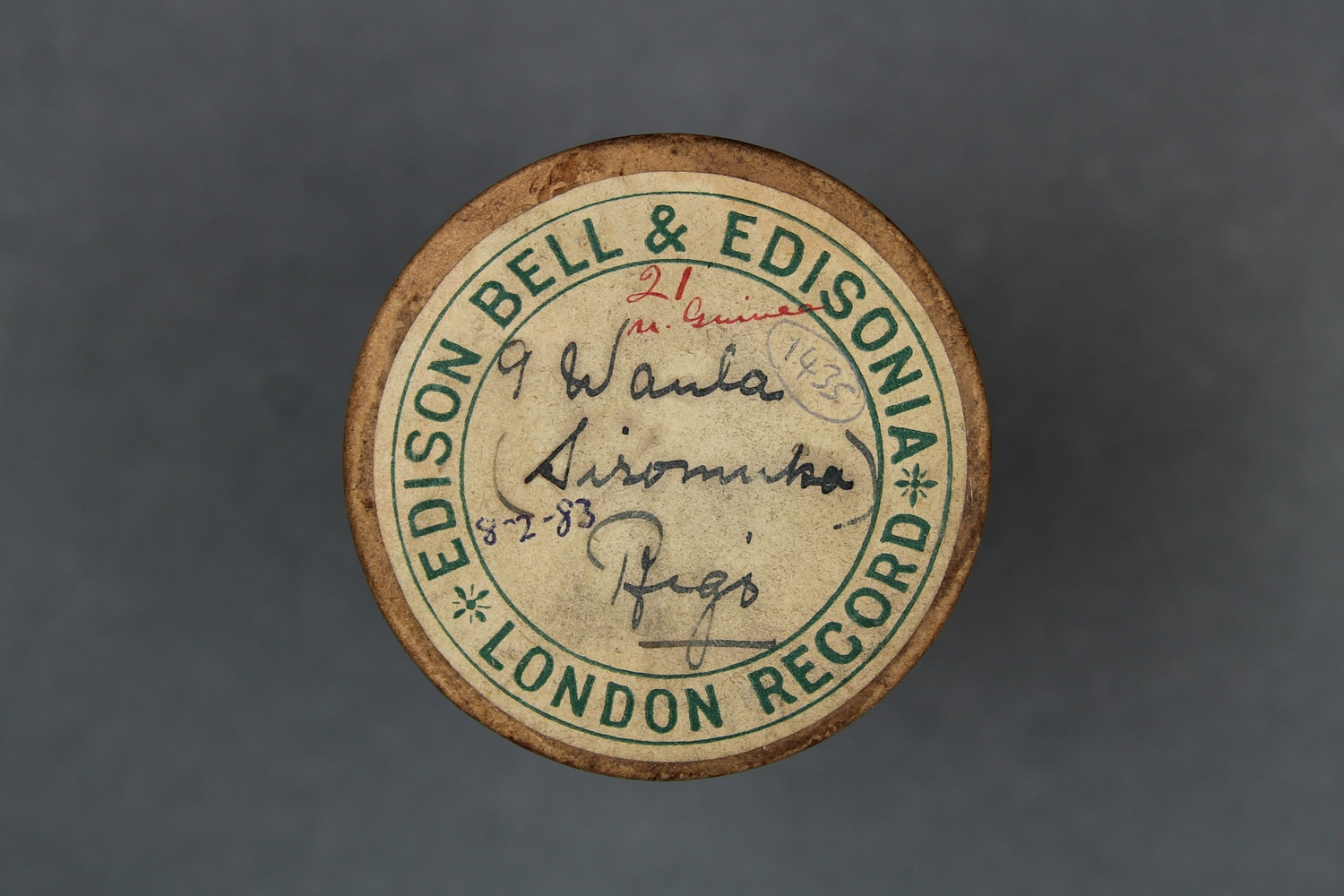      | |||||||
| C62/1436 | 5 Enaniori Rigo | Unidentified (singer, male) | Rigo, Central District, British New Guinea | July 1904 | 1. Announcement: "...[indecipherable] from their ancestral [indecipherable] the meaning of the words now completely forgotten." 2. Unaccompanied male vocal solo. | Sinaugoro | Field recordings | Seligman, Charles Gabriel | 2'46" | Daniels Ethnographical Expedition to New Guinea 1904 | Brown wax cylinder | Daniels Ethnographical Expedition to New Guinea 1904 Cylinder Collection (C62) | British Library | 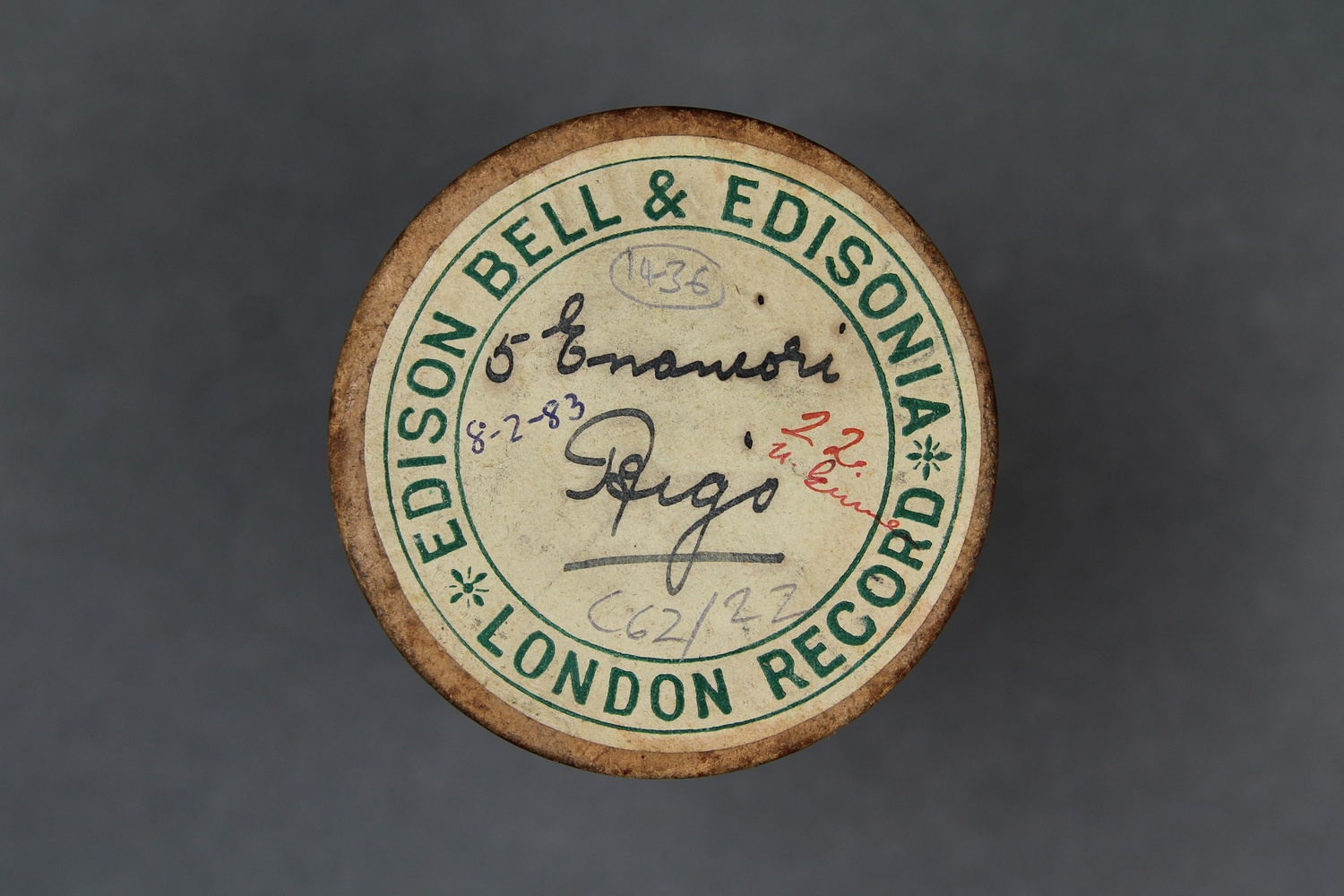      | ||||||||
| C62/1437 | Galo Galo. Motu | Unidentified (male chorus); unidentified (percussion) | Port Moresby, British New Guinea | October 1904 | 1. Announcement: "Galo Galo, a Motu song, sung when hauling captured dugung alongside the canoe, Hanuabada, October 1904." 2. Male vocal group with percussion accompaniment. Moto is presumably a typographical error and should read Motu. A dugong hunting song. | Good quality recording. | Motu | Field recordings; Dugong fishing song | Seligman, Charles Gabriel | 3'41" | Daniels Ethnographical Expedition to New Guinea 1904 | Brown wax cylinder | Daniels Ethnographical Expedition to New Guinea 1904 Cylinder Collection (C62) | British Library | 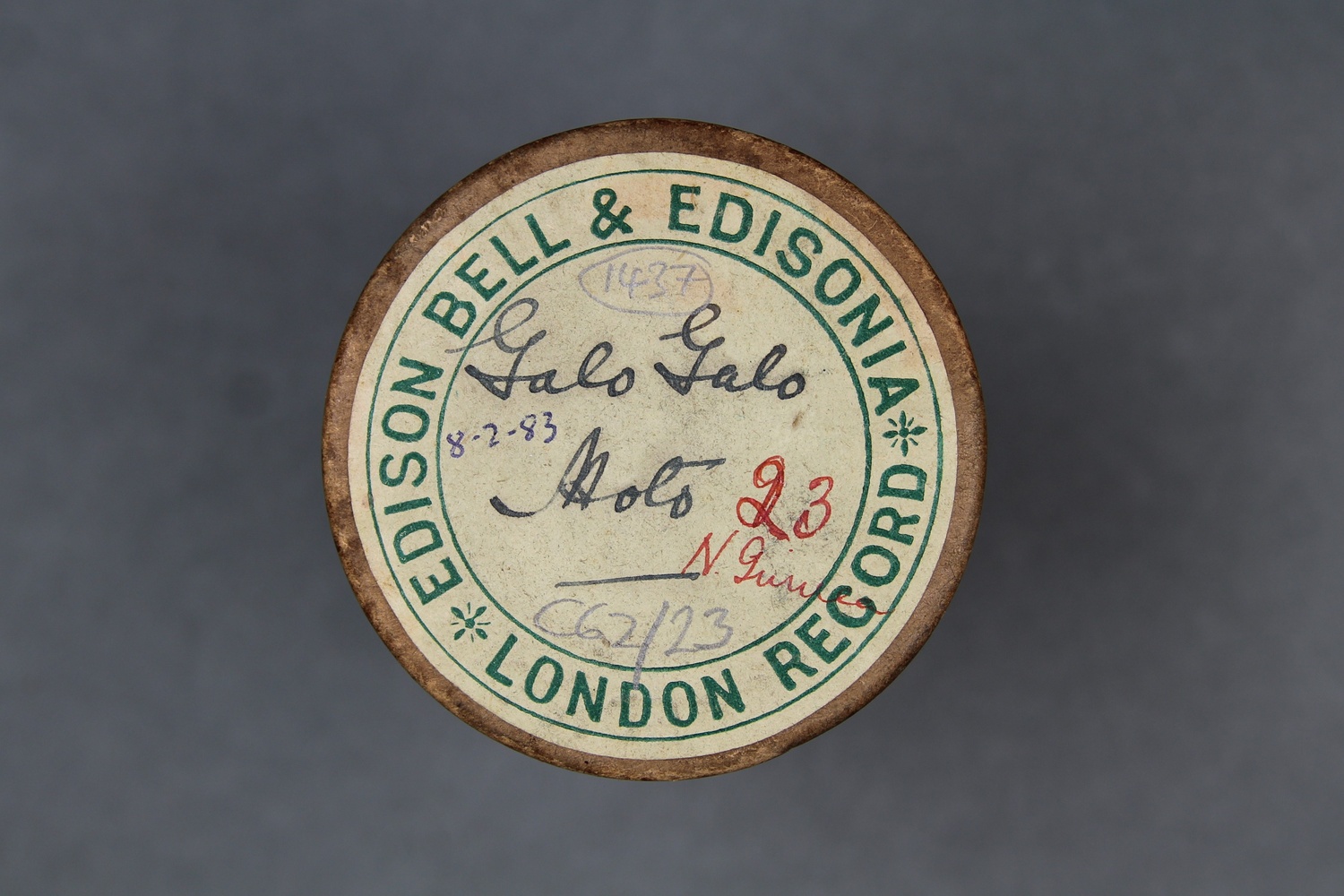      | |||||||
| C62/1438 | Bogi Bada | Unidentified (singer, male); unidentified (percussion) | Port Moresby, British New Guinea | 5 January 1904 | 1. Unaccompanied male vocal solo. 2. Male vocal solo with percussion accompaniment. This is a historical ehona song concerning a lakatoi canoe trip as part of the hiri trading voyage. | Reasonable quality recording but with surface noise. | Motu | Field recordings; Trading song; Voyaging song | Seligman, Charles Gabriel | 2'36" | Daniels Ethnographical Expedition to New Guinea 1904 | Brown wax cylinder | Daniels Ethnographical Expedition to New Guinea 1904 Cylinder Collection (C62) | British Library | 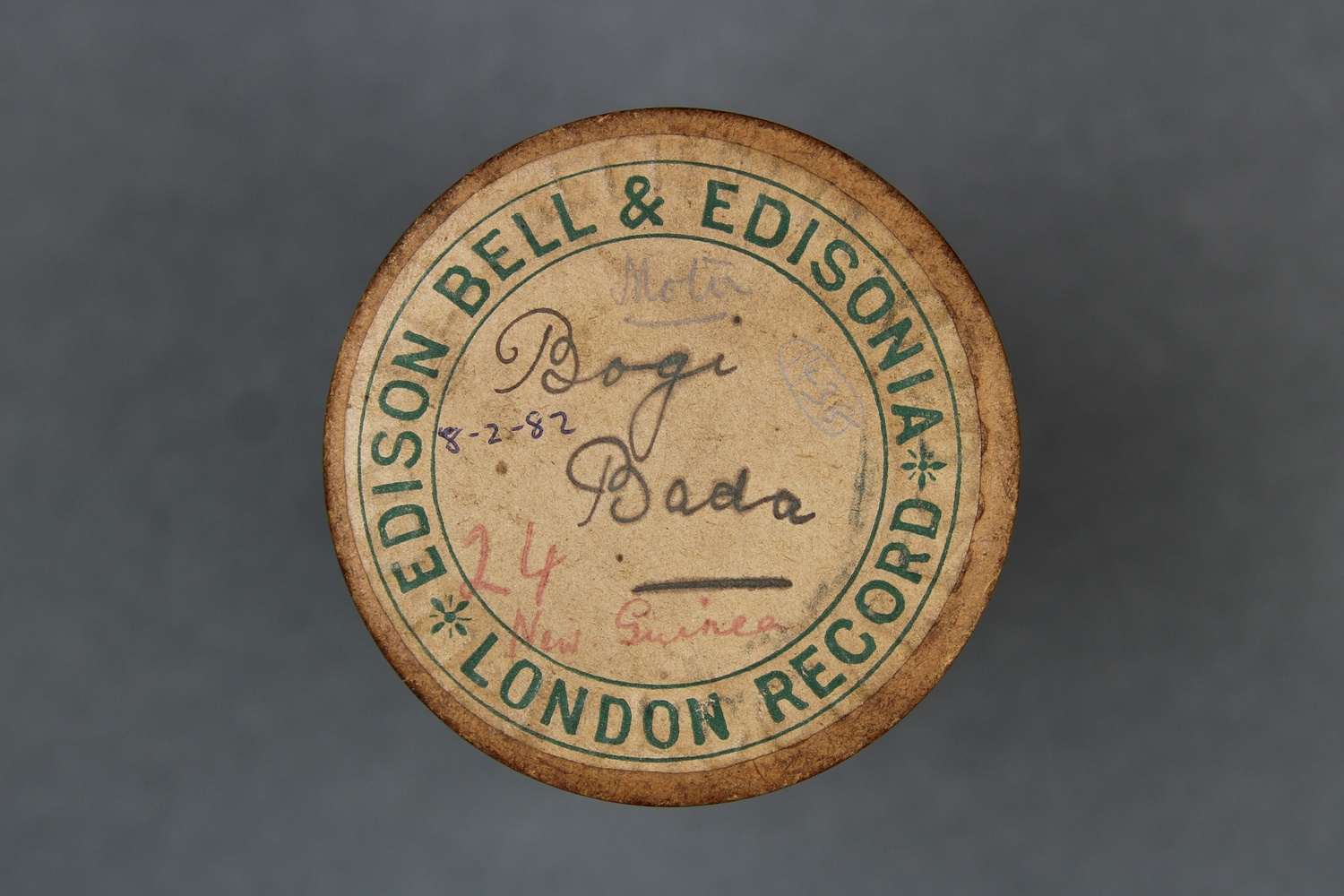      | Transcription of song in F. R. Barton's chapter in Charles Seligmann 'The Melanesians of British New Guinea', Cambridge Universtiy Press, 1910:116. | ||||||
| C62/1439 | Kaime Gore / Gaigo Lelova | Unidentified (male chorus); unidentified (percussion) | Port Moresby, British New Guinea | 5 January 1904 | 1-2. Male vocal group accompanied by percussion. This is probably a historical ehona song concerning Kaimegore, a man who sailed a lakatoi canoe as part of the hiri trading voyage. | Reasonable quality recording but with some surface noise. | Motu and/or Koitabu | Field recordings | Seligman, Charles Gabriel | 2'34" | Daniels Ethnographical Expedition to New Guinea 1904 | Brown wax cylinder | Daniels Ethnographical Expedition to New Guinea 1904 Cylinder Collection (C62) | British Library | 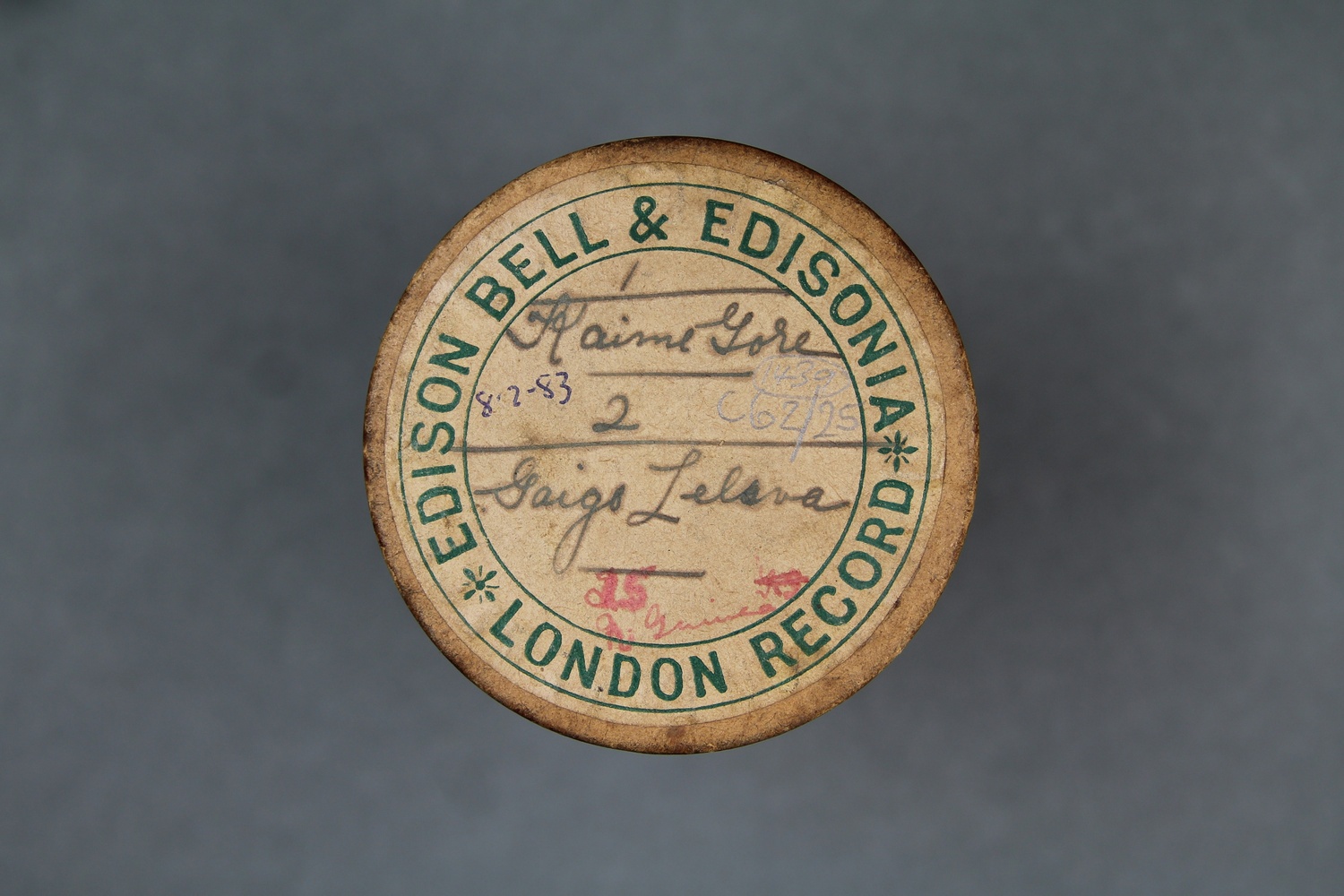      | Transcription of song in F. R. Barton's chapter in Charles Seligmann 'The Melanesians of British New Guinea', Cambridge Universtiy Press, 1910:117. | ||||||
| C62/1442 | Geagea | Unidentified (male chorus); unidentified (percussion) | Rigo, Central District, British New Guinea | July 1904 | 1. Announcement: "Geogeo, a Sinaugolo dance song, sang [sic] at Rigo, 1904." 2. Male vocal group with percussion accompaniment. | Good quality recording. | Sinaugoro | Field recordings | Seligman, Charles Gabriel | 2'47" | Daniels Ethnographical Expedition to New Guinea 1904 | Brown wax cylinder | Daniels Ethnographical Expedition to New Guinea 1904 Cylinder Collection (C62) | British Library |       | |||||||
| C62/1443 | Damorea Waga Waga | Unidentified (singer, male) | Waga Waga, Milne Bay, British New Guinea | October 1904 | 1. Announcement "Damorea. A Waga Waga song, sung at the Toreha by Wiri [?]." 2-3. Unaccompanied male vocal solo. A song sung at a funeral feast. | Good quality recording. | Wagawaga | Field recordings; Laments | Seligman, Charles Gabriel | 3'10" | Daniels Ethnographical Expedition to New Guinea 1904 | Brown wax cylinder | Daniels Ethnographical Expedition to New Guinea 1904 Cylinder Collection (C62) | British Library | 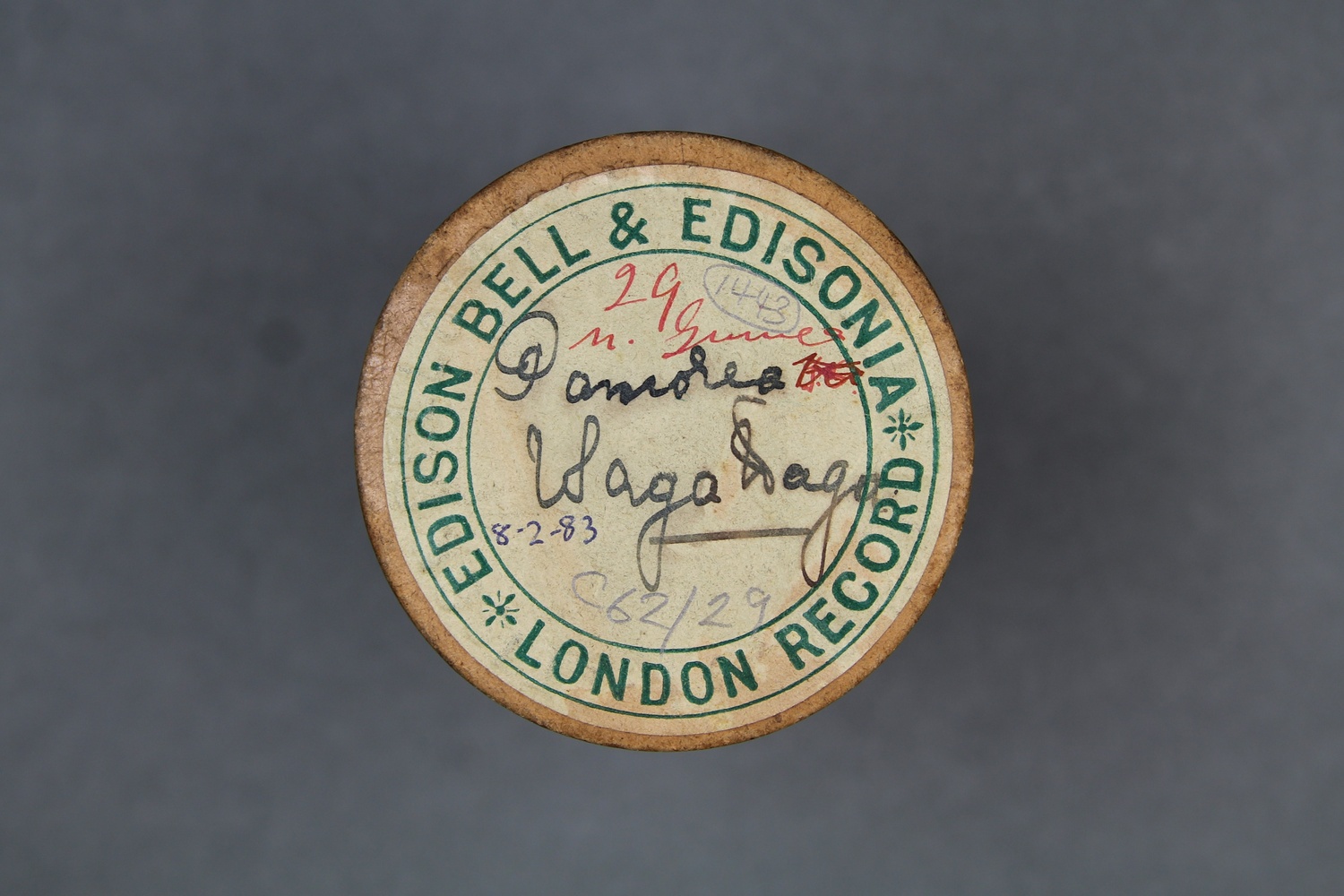      | This song is transcribed in Charles G. Seligmann, 'The Melanesians of British New Guinea', Cambridge University Press, 1910:587. | ||||||
| C62/1451 | Various calls. Koita | Unidentified (singer, male) | Port Moresby, British New Guinea | October 1904 | 1. Announcement: "[indecipherable] calling to [indecipherable] to be brought to [indecipherable]. 2. Unaccompanied male vocal solo. 3. "Hunting call, returning to village after catching fish." 4. Unacc. male vocal solo. 5. Call given from [indecipherable], signalling return of Lakatoi." 6. Unacc. male vocal solo. 7. "Call from [indecipherable] for folk to come and take baskets containing yams and portions of fish." 8. Unaccompanied male vocal solo. Calls related to hunting, fishing and sailing. | Good quality recording. | Koitabu | Field recordings; Speeches | Seligman, Charles Gabriel | 3'34" | Daniels Ethnographical Expedition to New Guinea 1904 | Brown wax cylinder | Daniels Ethnographical Expedition to New Guinea 1904 Cylinder Collection (C62) | British Library | 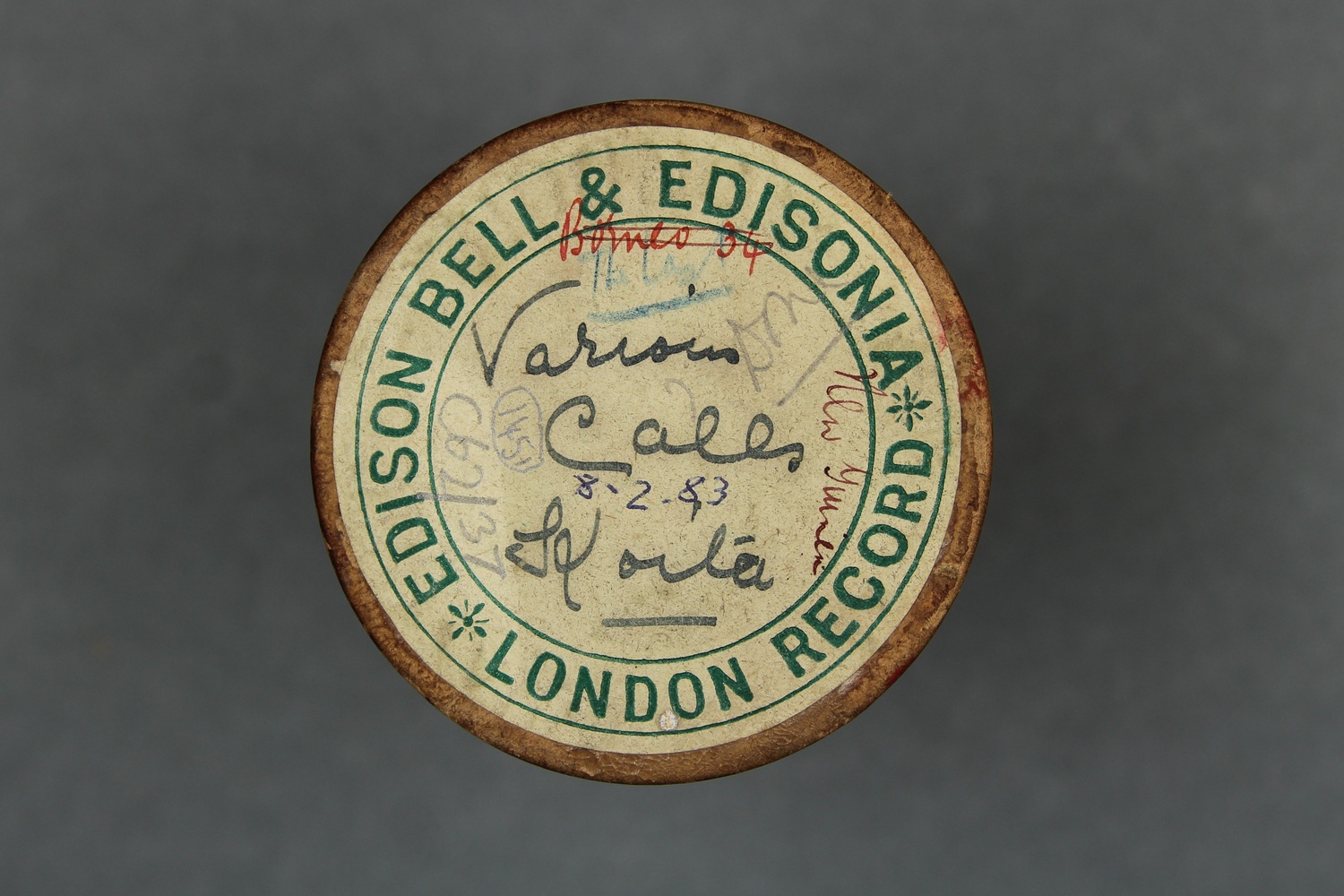      | |||||||
| C62/1452 | Ehona Koita | Igo Gow (singer, male) | Port Moresby, British New Guinea | October 1904 | 1. Announcement: "Ehona, a Koita and Motu dirge, sung by Igo[?], Port Moresby, October 1904." 2. Male vocal solo, accompanied by percussion. An ehona song. | Reasonable quality recording but with weak signal and some distortion. | Koitabu and/or Motu | Field recordings; Laments | Seligman, Charles Gabriel | 3'50" | Daniels Ethnographical Expedition to New Guinea 1904 | Brown wax cylinder | Daniels Ethnographical Expedition to New Guinea 1904 Cylinder Collection (C62) | British Library |       | This song may be discussed and transcribed in Charles G. Seligmann, 'The Melanesians of British New Guinea', Cambridge University Press, 1910:152. | There are two photos of Igo Gow in the British Museum (Oc,B119.43 and Oc,B119.52). | |||||
| C80/1456 | Lakatoi Song | Unidentified (male chorus) | Port Moresby, British New Guinea | 20 June 1898 – 6 July 1898 | 1. Announcement: "A Lakatoi Song." 2. Unaccompanied male vocal group. | Reasonable quality recording but with weak signal and surface noise. | Motu (archaic language) | Field recordings; Sailing; Trade | Ray, Sidney | 2'20" | Alfred Cort Haddon 1898 Expedition, British New Guinea | Brown wax cylinder | Alfred Cort Haddon 1898 Expedition (Torres Strait and British New Guinea) Cylinder Collection | British Library | 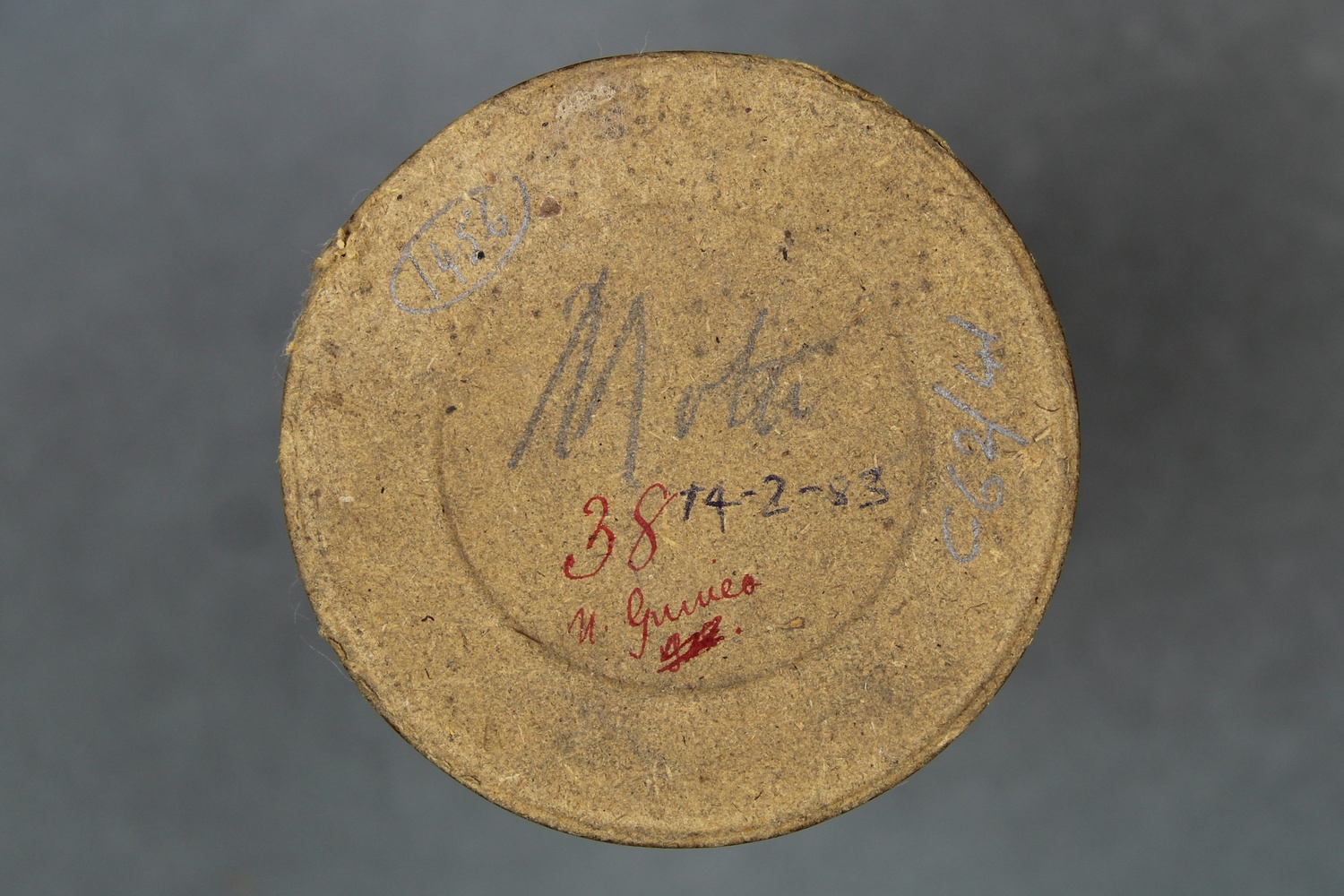 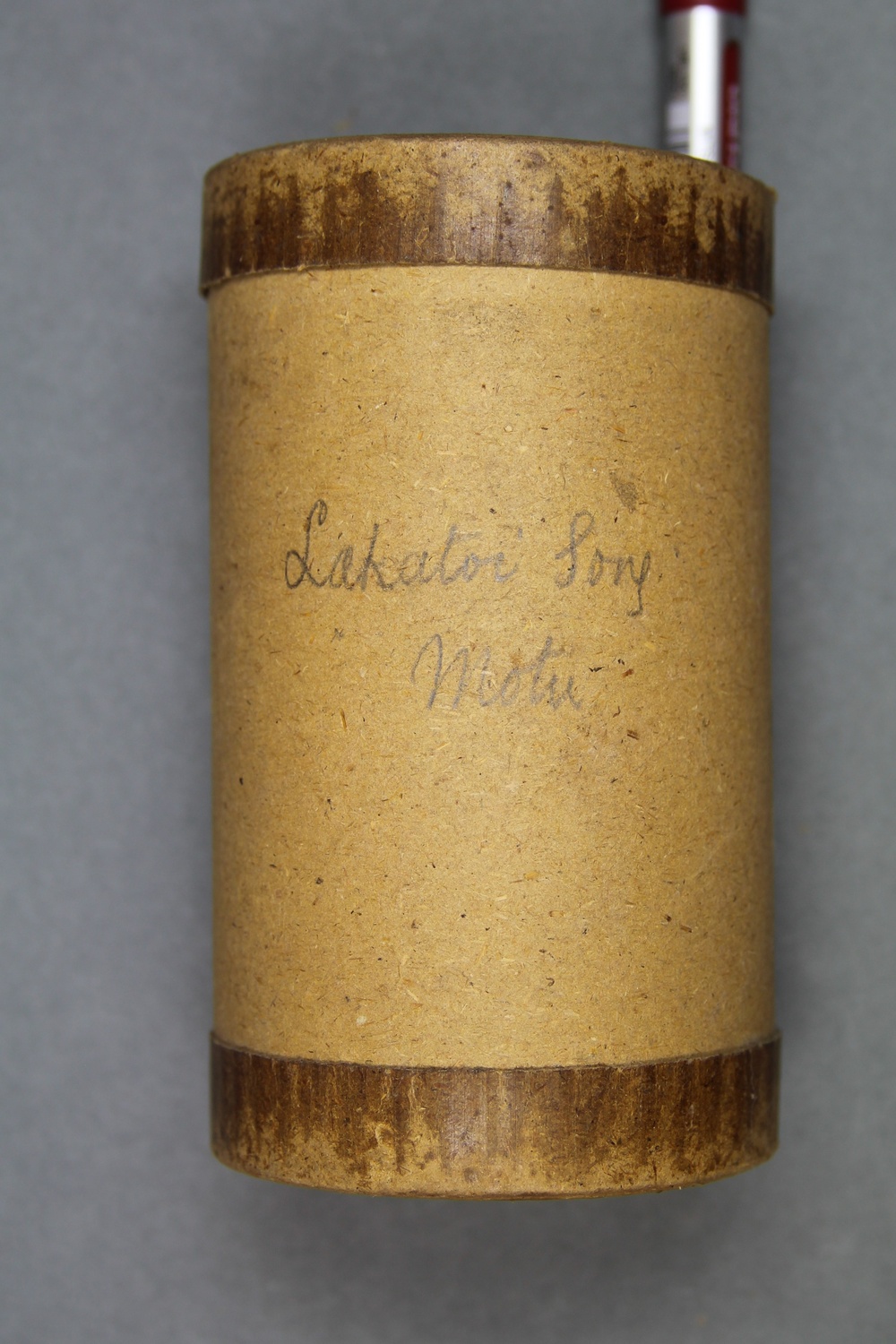     | |||||||
| C80/1459 | Lekuleku by Gima, Chief of Hula | Gima (singer, male, chief of Hula) | Hula, Central District, British New Guinea | 10 June 1898 | 1. Indecipherable announcement. 2. Unaccompanied male vocal solo. "On 10 June, Ray noted in his diary that he persuaded [Gima] to sing some Lekuleku into the machine” (Ray 1898–1899:59). A leku was a war song according to Kolia (1975:187). | Reasonable quality recording with improving signal strength, but also with surface noise. | Hula | Field recordings; War song | Ray, Sidney | 2'44" | Alfred Cort Haddon 1898 Expedition, British New Guinea | Brown wax cylinder | Alfred Cort Haddon 1898 Expedition (Torres Strait and British New Guinea) Cylinder Collection | British Library |  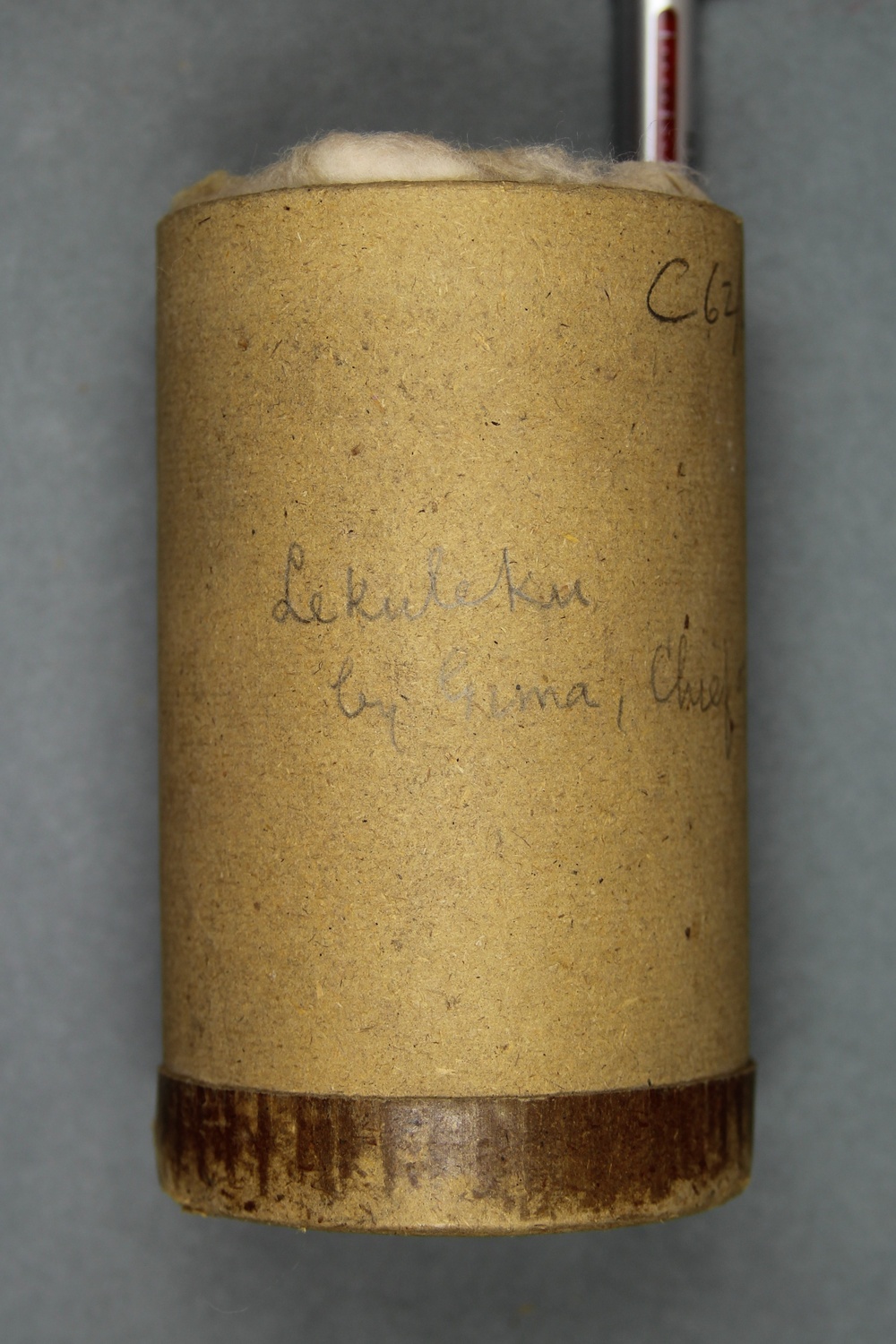 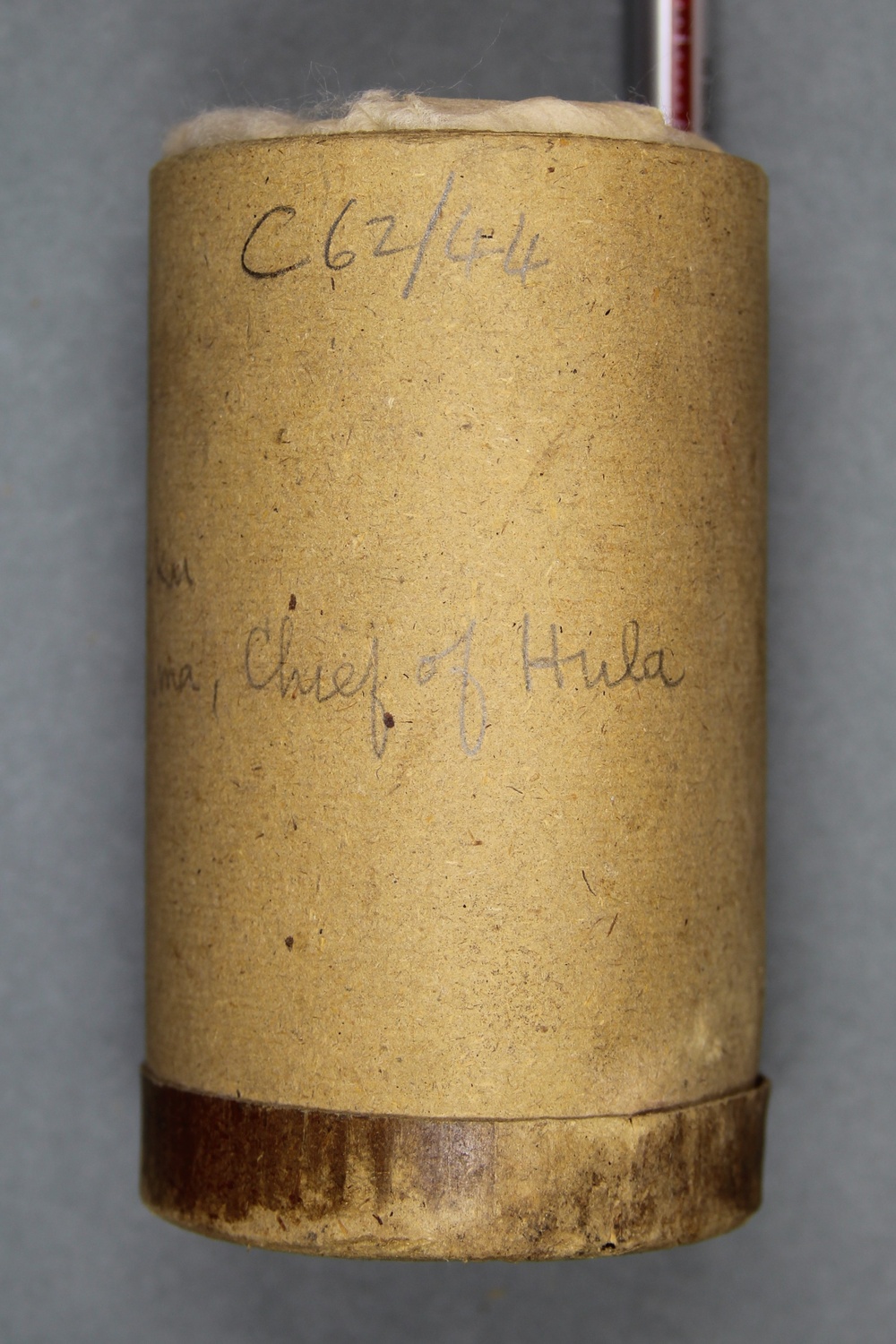    | Kolia, John. 1975. A Balawaia Grammar Sketch and Vocabulary. In Studies in Languages of Central and South-East Papua, edited by Tom E. Dutton, 107–226. Pacific Linguistics, C 19. Canberra: Australian National University. | ||||||
| C80/1460 | Dirge of Hula Women | Unidentified (male chorus) | Hula, Central District, British New Guinea | 4 June 1898 – 15 June 1898 | 1. Announcement: "[indecipherable] song, Hula." 2. Unaccompanied vocal group with male solo. 3. Unaccompanied vocal group. | Reasonable quality recording but with surface noise due to mould on cylinder. | Hula | Field recordings, Laments | Ray, Sidney | 3'19" | Alfred Cort Haddon 1898 Expedition, British New Guinea | Light brown wax cylinder | Alfred Cort Haddon 1898 Expedition (Torres Strait and British New Guinea) Cylinder Collection | British Library |  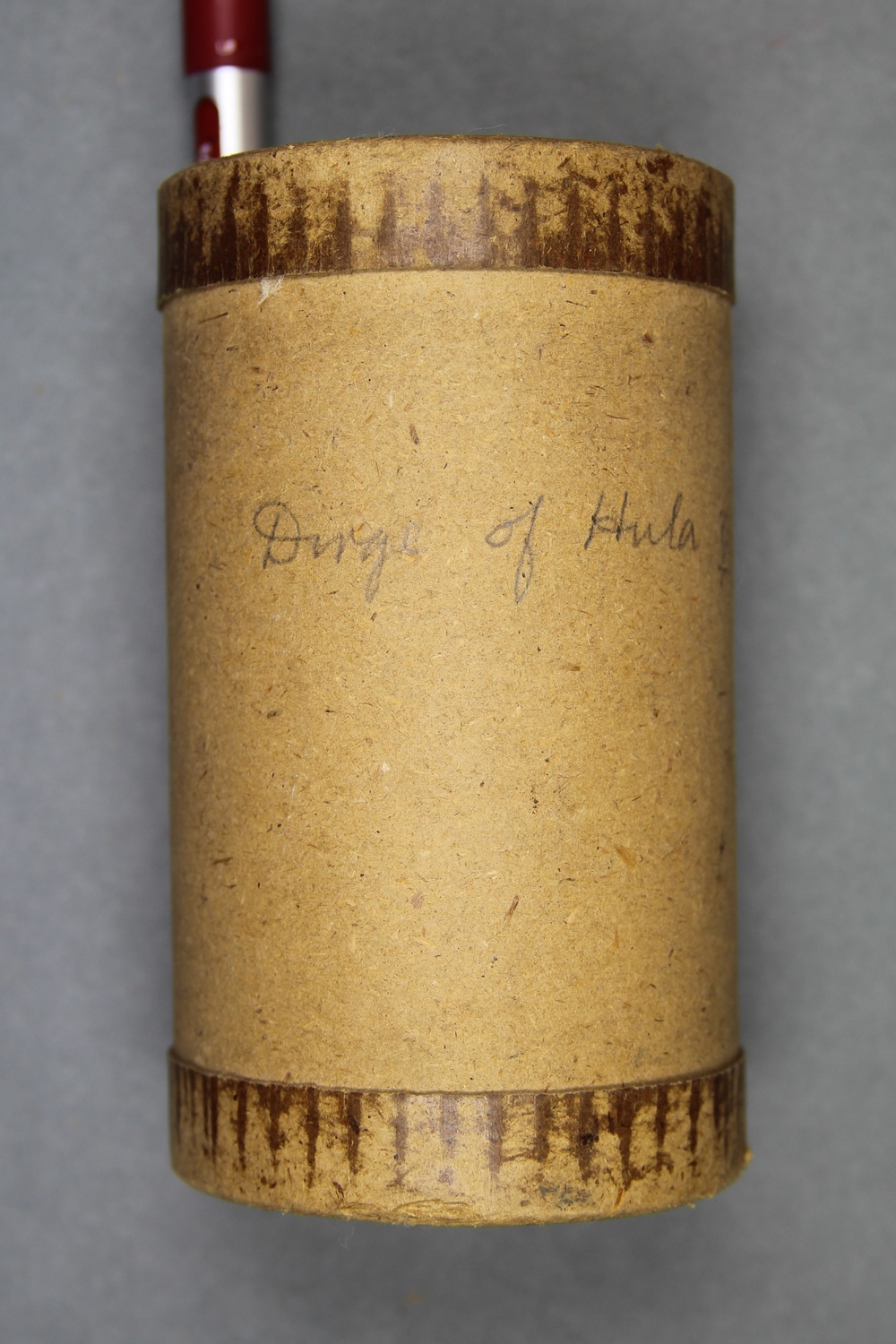     | |||||||
| C80/1463 | Hymns at Vatorata | Unidentified (female chorus) | Hula, Central District, British New Guinea? | 3 June 1898 – 15 June 1898 | 1. Indecipherable announcement. 2. Female vocal group. | Poor quality recording with weak signal and heavy surface noise due to mould on cylinder. | Hula | Field recordings; Hymns | Ray, Sidney | 2'41" | Alfred Cort Haddon 1898 Expedition, British New Guinea | Light brown wax cylinder | Alfred Cort Haddon 1898 Expedition (Torres Strait and British New Guinea) Cylinder Collection | British Library | 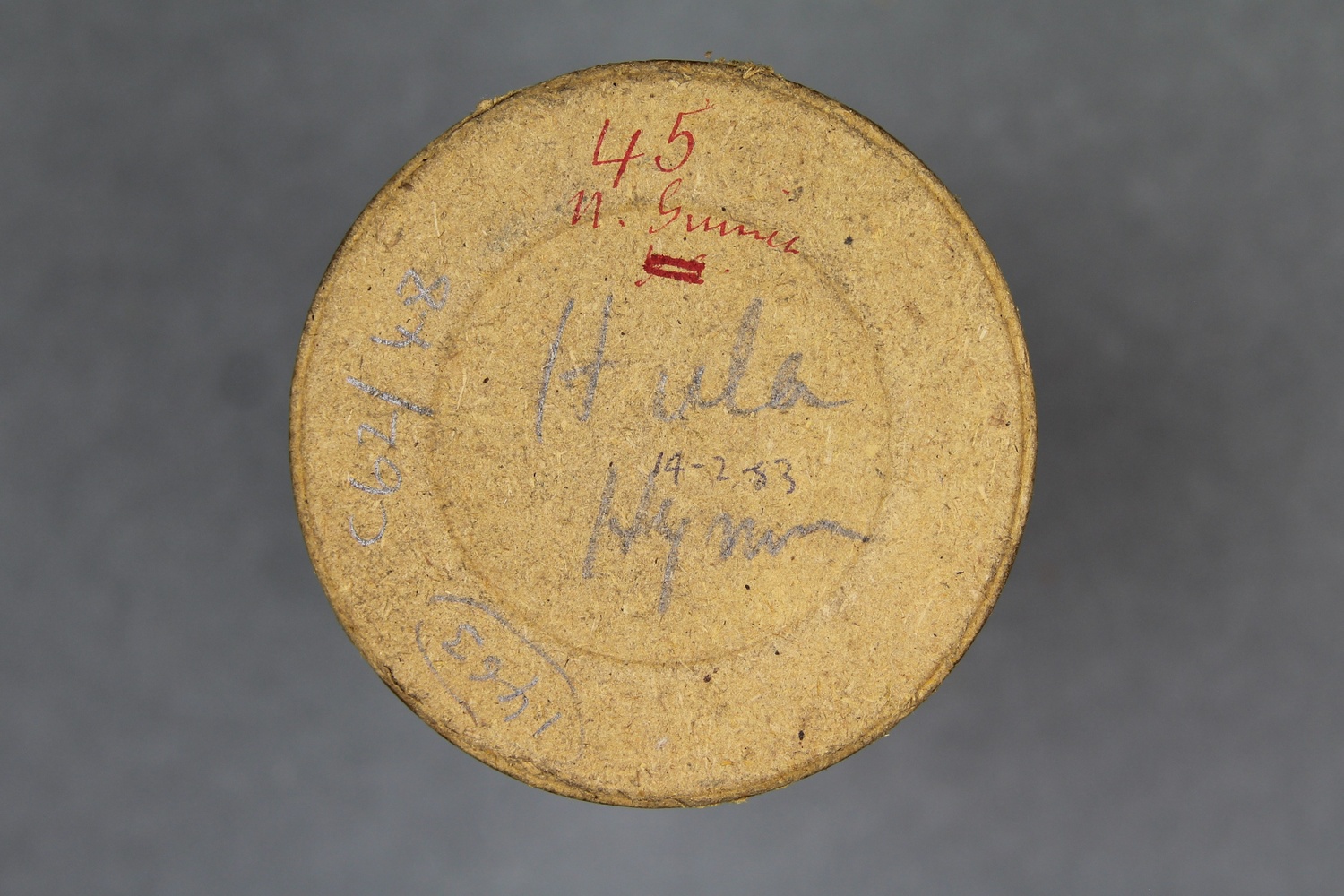 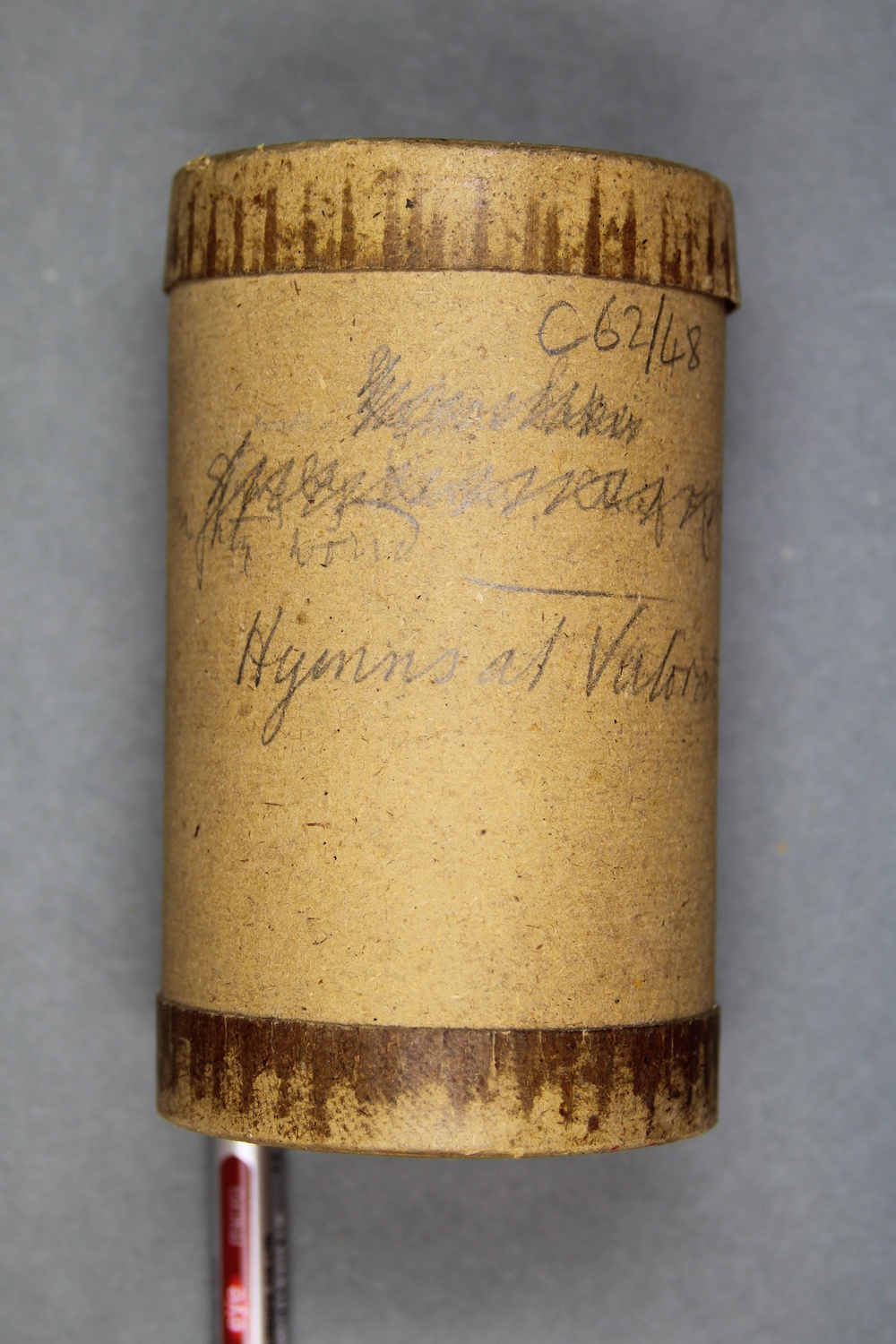  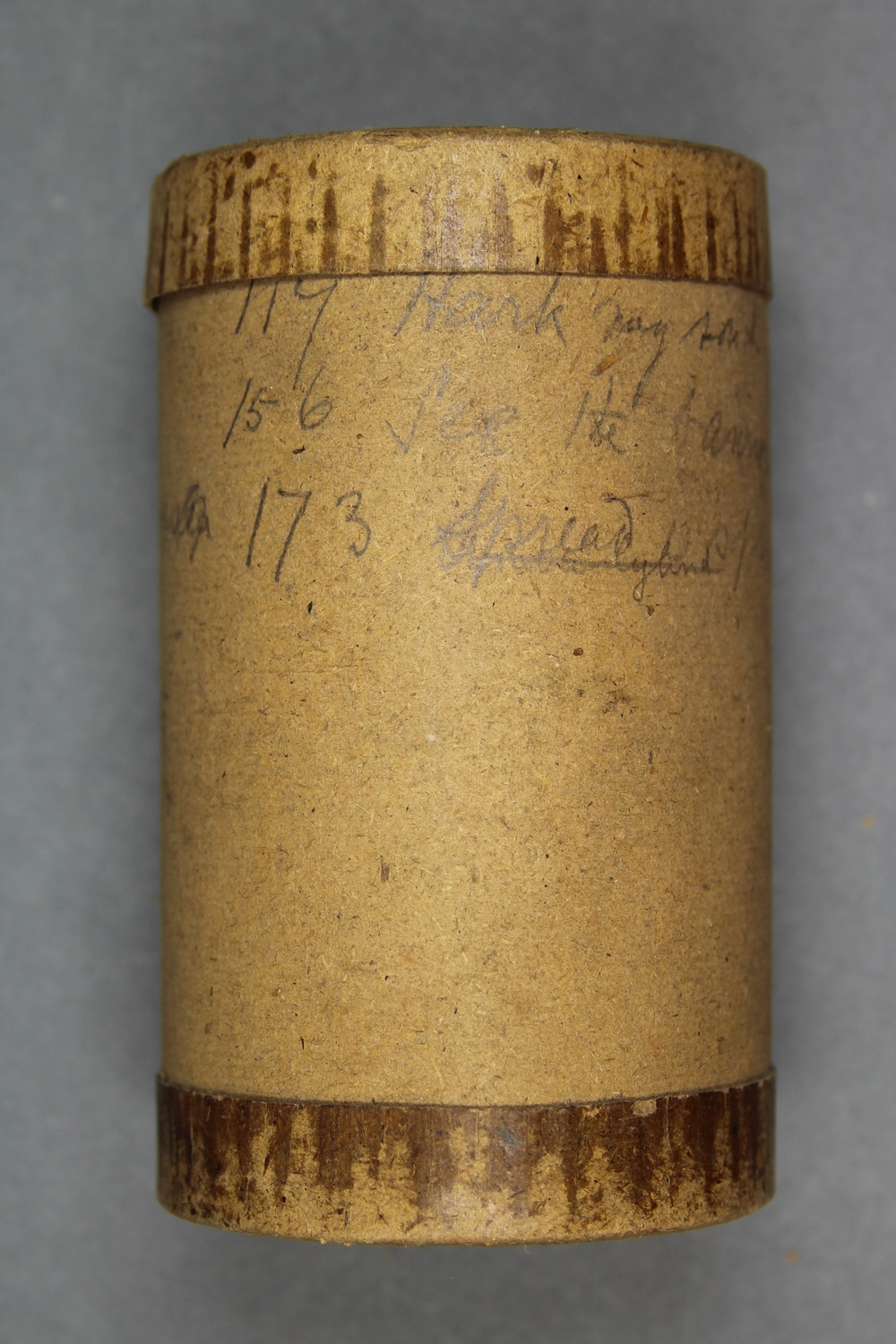 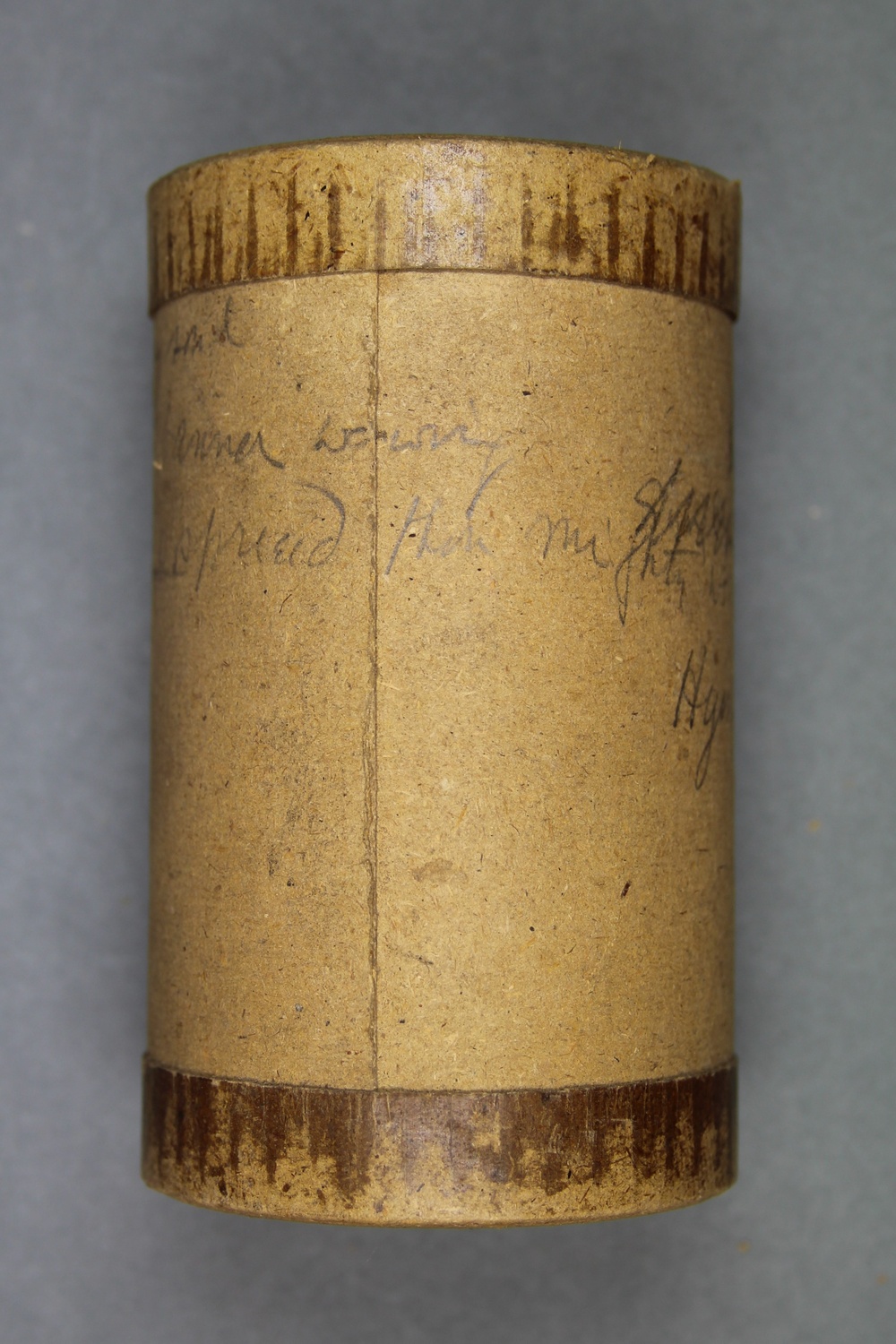  | |||||||
| C80/1464 | Dugong Fishers' Song [1] | Unidentified (male chorus) | Hula, Central District, British New Guinea | 4 June 1898 – 15 June 1898 | 1. Announcement: "Dugong fishers' song. Hulaa." 2. Unaccompaned male vocal group. | Reasonable quality recording but with surface noise due to patches of mould on cylinder. | Hula | Field recordings; Dugong fishing songs | Ray, Sidney | 2'00" | Alfred Cort Haddon 1898 Expedition, British New Guinea | Light brown wax cylinder | Alfred Cort Haddon 1898 Expedition (Torres Strait and British New Guinea) Cylinder Collection | British Library | 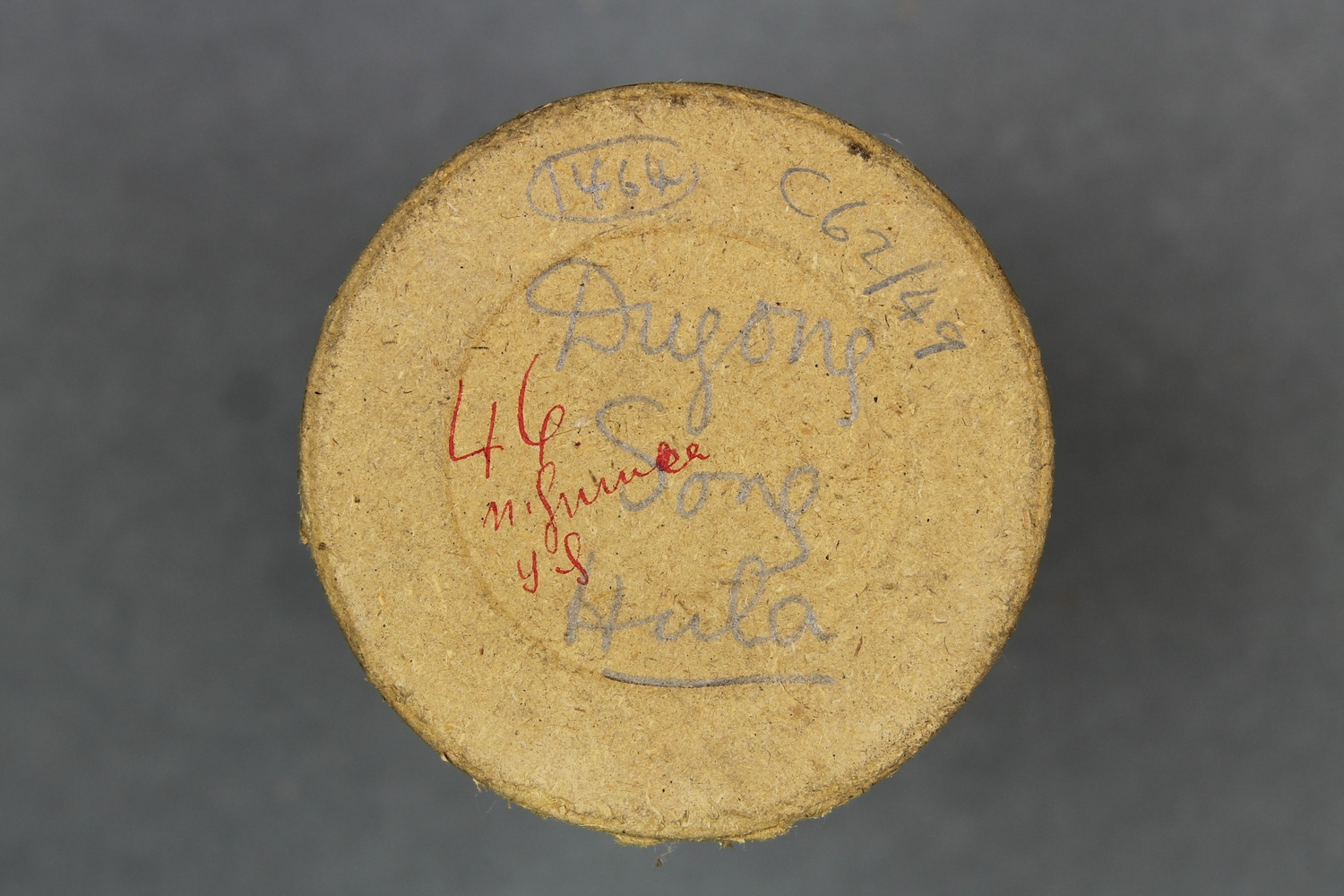 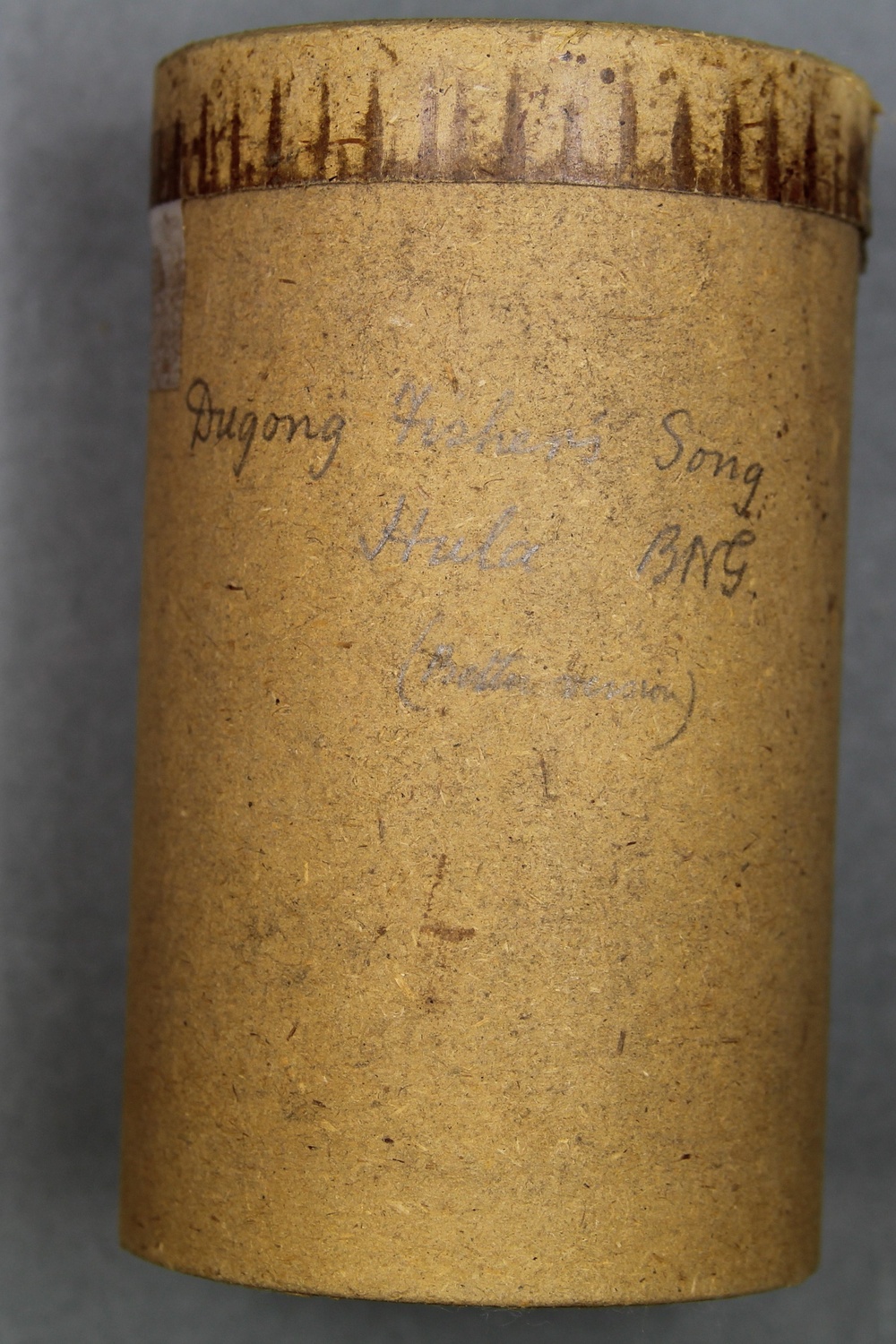     | |||||||
| C80/1465 | Dugong Fishers' Song [2] | Unidentified (male chorus) | Hula, Central District, British New Guinea | 4 June 1898 – 15 June 1898 | 1. Announcement: "Dugong Fishers' Song. Hulaa." 1. Unaccompanied male vocal group. | Reasonable quality recording but with surface noise due to patches on mould on cylinder. | Hula | Field recordings; Dugong fishing songs | Ray, Sidney | 2'10" | Alfred Cort Haddon 1898 Expedition, British New Guinea | Light brown wax cylinder | Alfred Cort Haddon 1898 Expedition (Torres Strait and British New Guinea) Cylinder Collection | British Library | 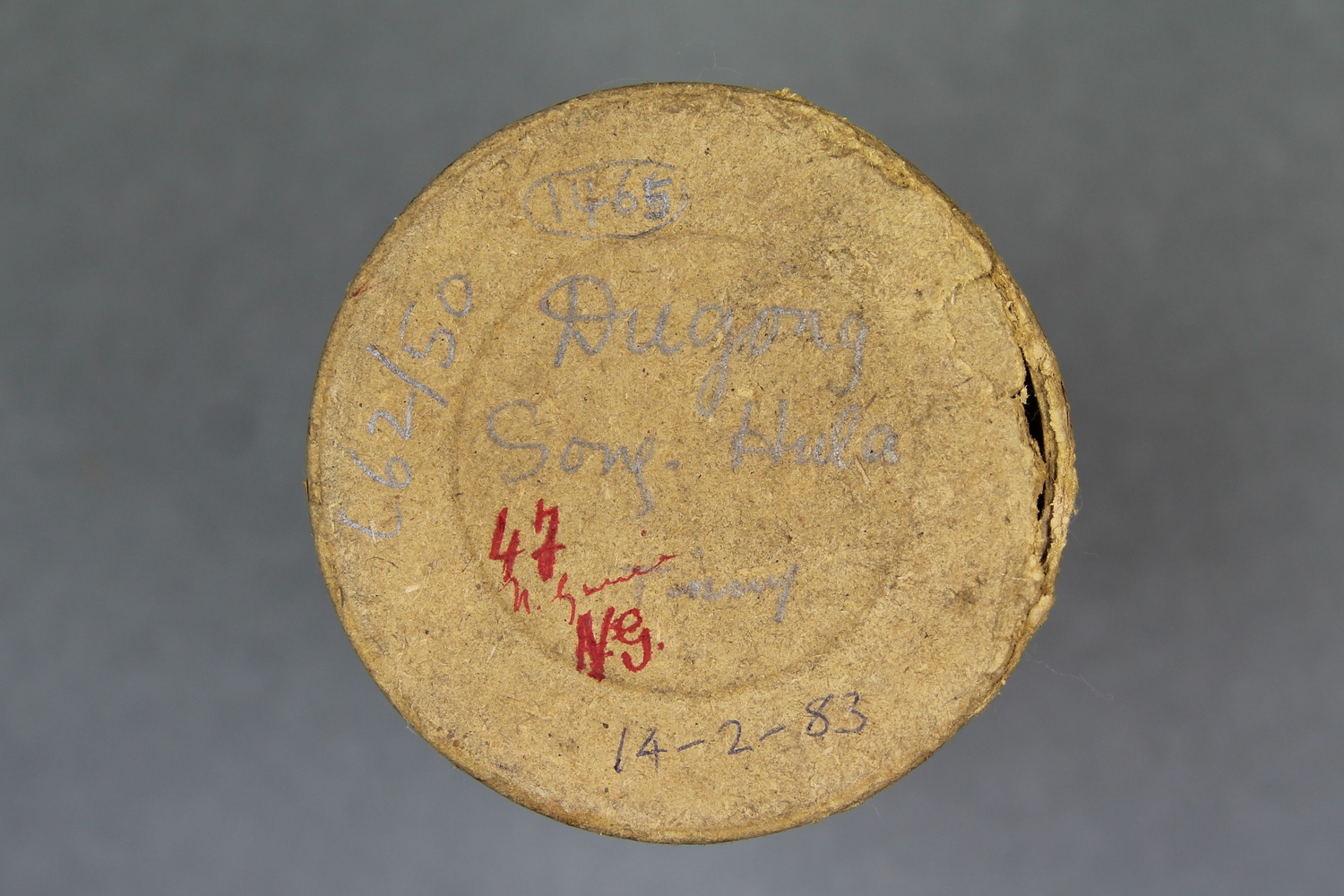      | |||||||
| C80/1467 | Canoe Song and Leku Leku Hula | Unidentified | Hula, Central District, British New Guinea | 13 June 1898 | 1. Indecipherable announcement. A leku was a war song according to Kolia (1975:187). | Hula | Field recordings; Canoe song; War song | Ray, Sidney | 2'30" | Alfred Cort Haddon 1898 Expedition, British New Guinea | Light brown wax cylinder | Alfred Cort Haddon 1898 Expedition (Torres Strait and British New Guinea) Cylinder Collection | British Library |  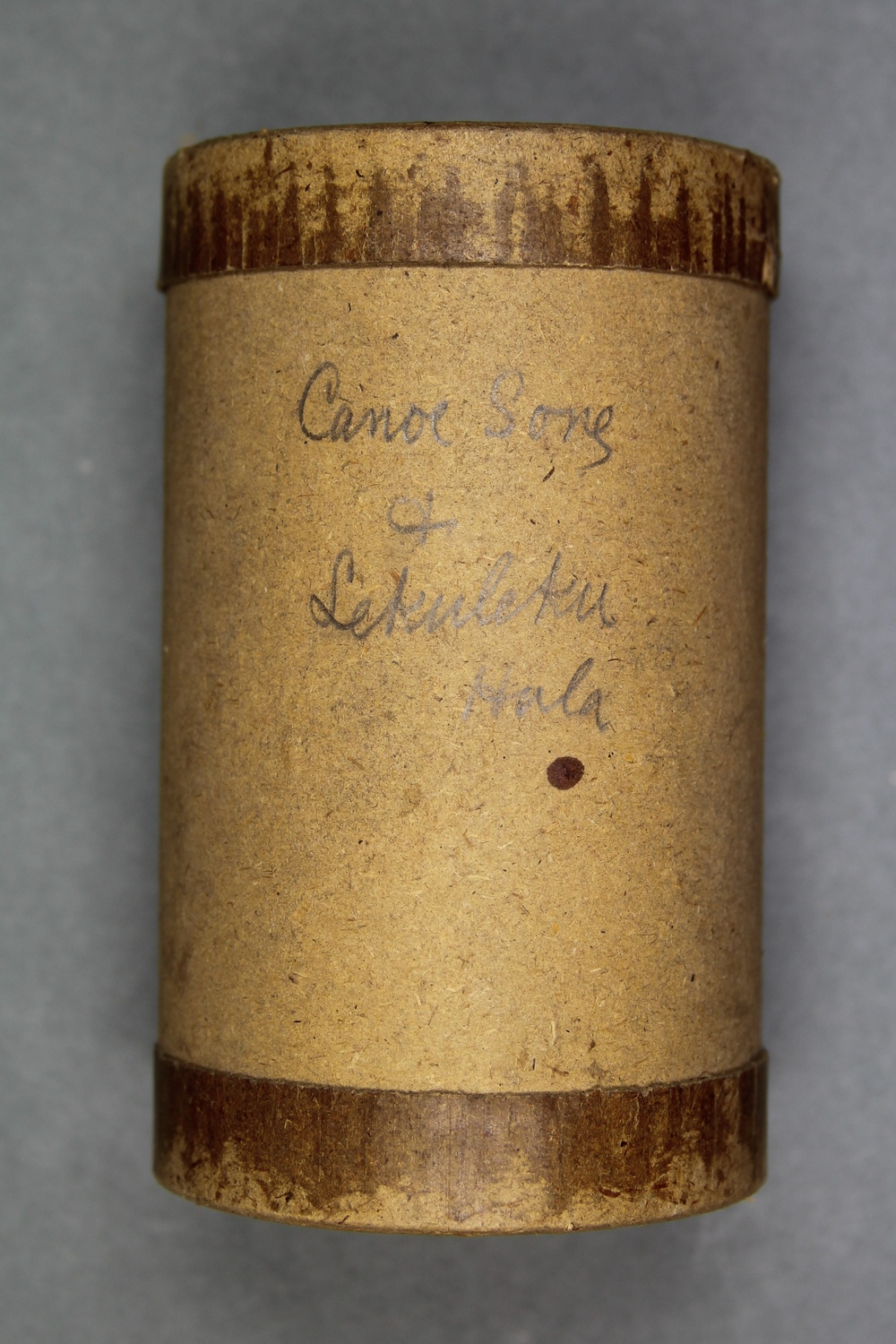     | Kolia, John. 1975. A Balawaia Grammar Sketch and Vocabulary. In Studies in Languages of Central and South-East Papua, edited by Tom E. Dutton, 107–226. Pacific Linguistics, C 19. Canberra: Australian National University. | |||||||
| C80/1468 | Kangaroo Hunting Song | Unidentified (singer, male) | Hula, Central District, British New Guinea | 9 June 1898 | 1. Announcement: "A hunting son, Hula." 2. Unaccompanied male vocal solo. “In the evening Ray phonographed 3 native songs in the school-house” (Haddon 1898–1899:114). Ray noted that he obtained 3 records, “a Lekuleku (ballad), a song sung by men when fishing for dugong, and a hunting song sung when hunting Kangaroo” (Ray 1898–1899:58). | Reasonable quality recording. | Hula | Field recordings; Wallaby hunting song | Ray, Sidney | 1'56" | Alfred Cort Haddon 1898 Expedition, British New Guinea | Light brown wax cylinder | Alfred Cort Haddon 1898 Expedition (Torres Strait and British New Guinea) Cylinder Collection | British Library | 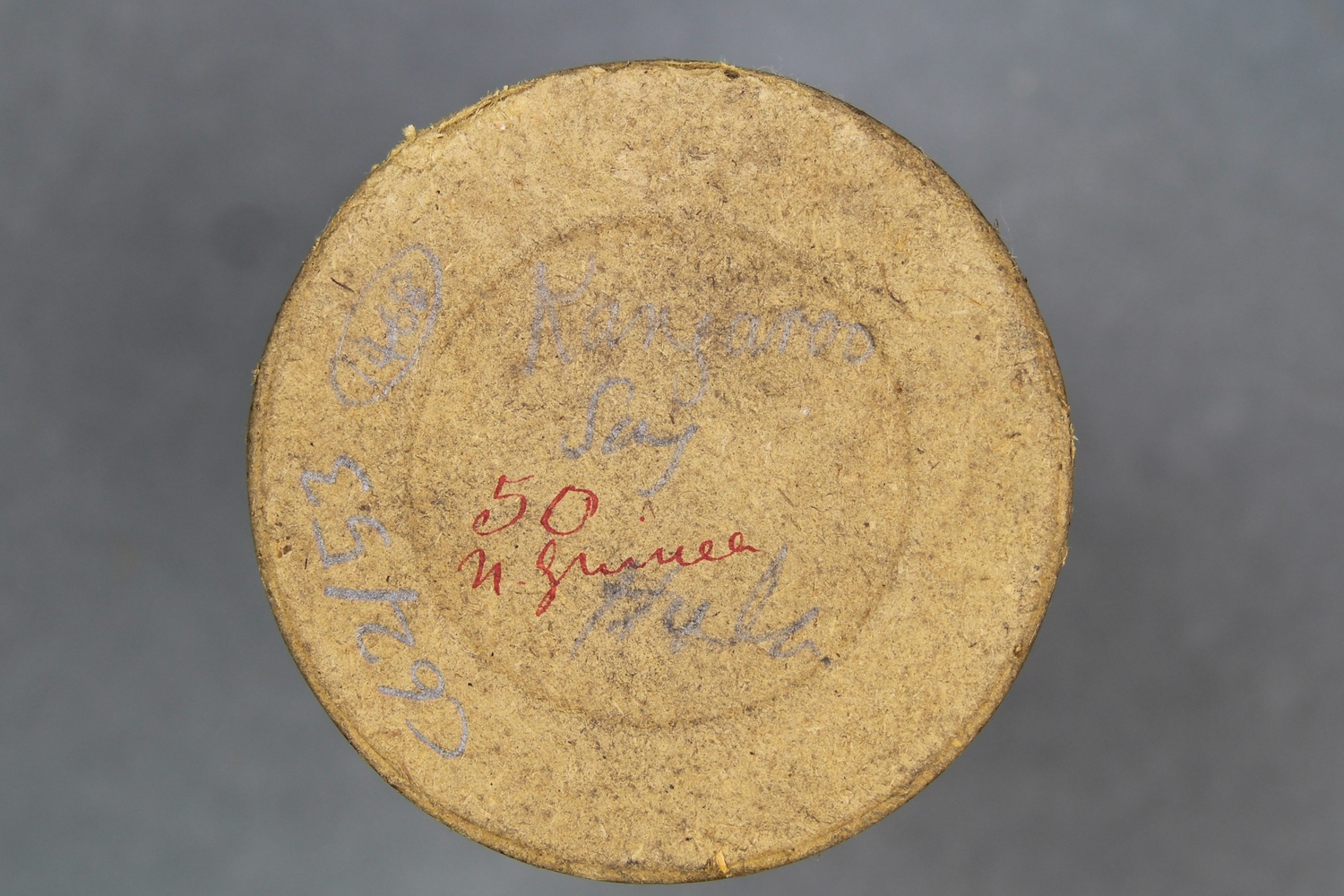      | |||||||
| C62/1491 | 15 Leku Leku Kulaa | Unidentified (chorus); unidentified (percussion) | Hula, Central District, British New Guinea | July 1904 | 1. Announcement: "Kwaipo Liku Liku, adopted and sung by the Kulaa." 2. Vocal group accompanied by drumming and clapping. | Good quality recording, although some surface noise. | Hula | Field recordings | Seligman, Charles Gabriel | 2'49" | Daniels Ethnographical Expedition to New Guinea 1904 | Light brown wax cylinder | Daniels Ethnographical Expedition to New Guinea 1904 Cylinder Collection (C62) | British Library | 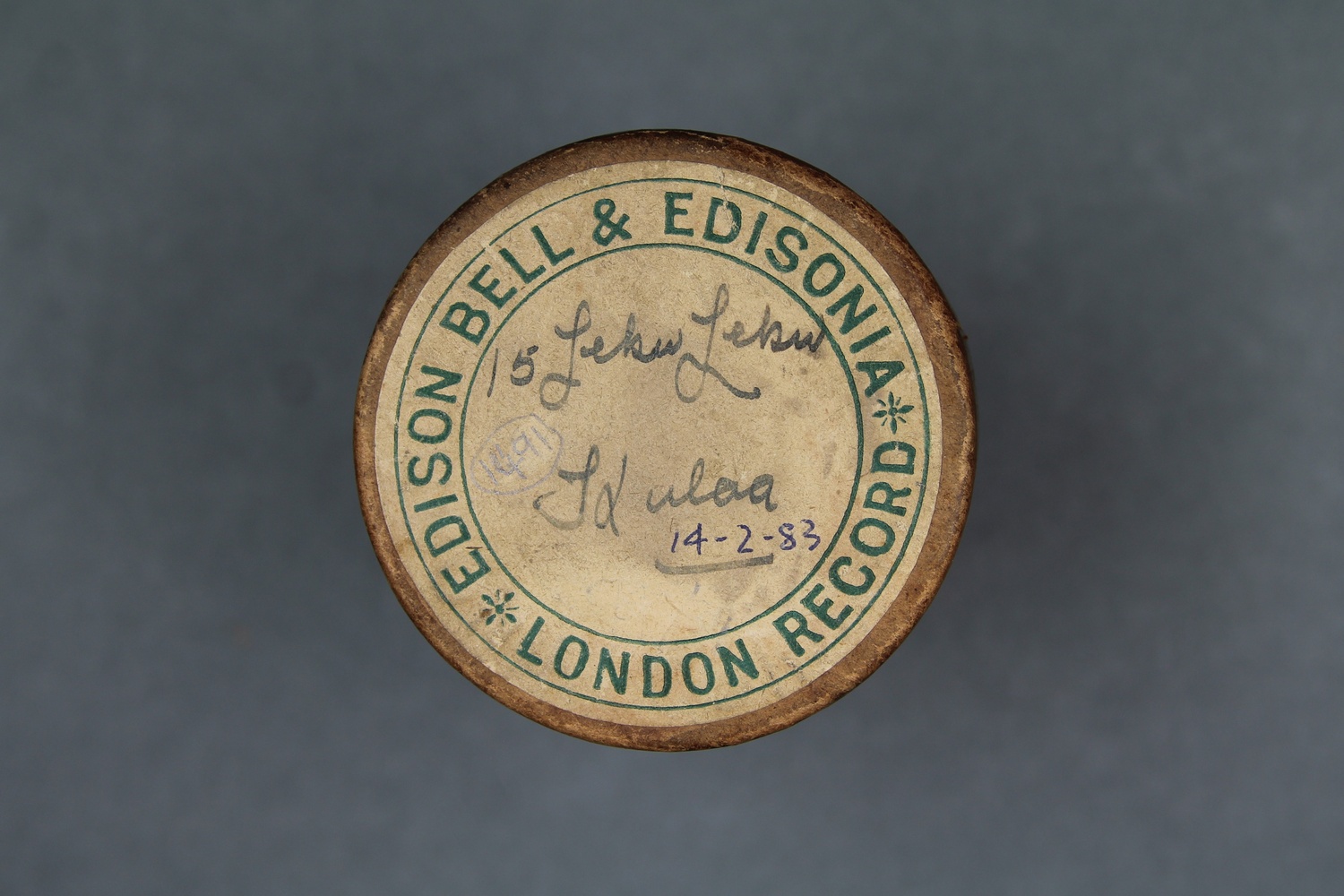      |

